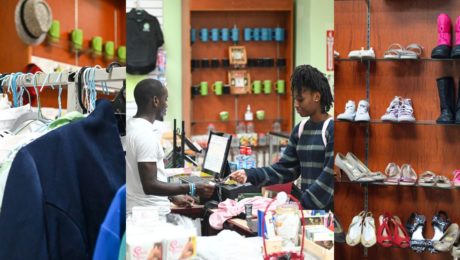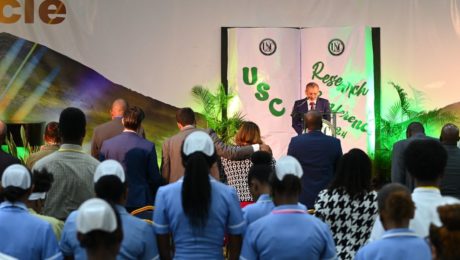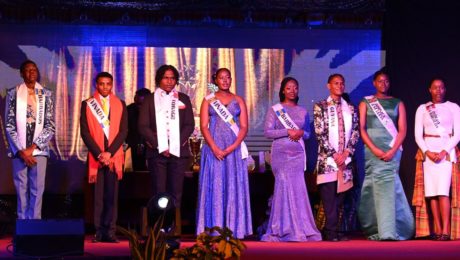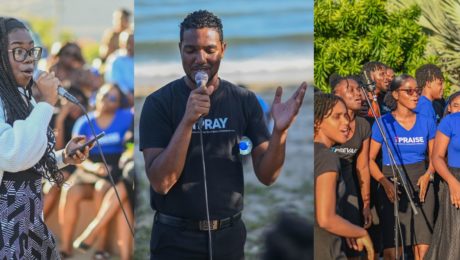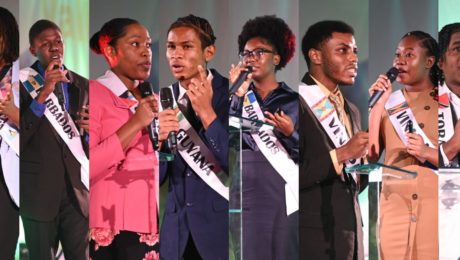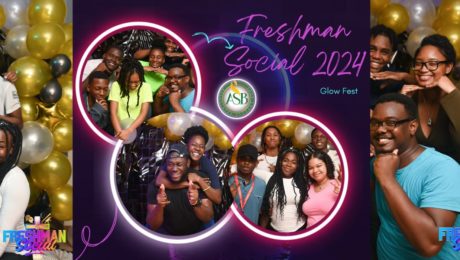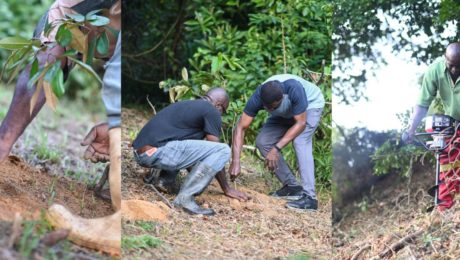USC’s KindHearted Thrift ‘N Valley Store Set to Relocate to New Campus Location
By Sharon De Freitas, Director of Business Development & Simone Augustus, Corporate Communications Officer
Amidst the lively ambiance of the University of the Southern Caribbean (USC), where friendly chatter intertwines with the rhythm of bustling footsteps, a new chapter is about to unfold. In April 2023, the campus experience was enriched with the inauguration of the USC’s very own on-campus Thrift ‘N Valley Store, igniting a spirit of community and sustainability. Now, as the store celebrates its one-year anniversary, it prepares for a momentous relocation to a new, dedicated space within the university grounds.
Previously nestled within the confines of the USC Bookstore, the KindHearted Thrift ‘N Valley Store is poised to embark on a new journey in its very own location, formerly known as “The Barn”. This strategic move comes as a result of the store’s remarkable success and burgeoning growth over the past year.
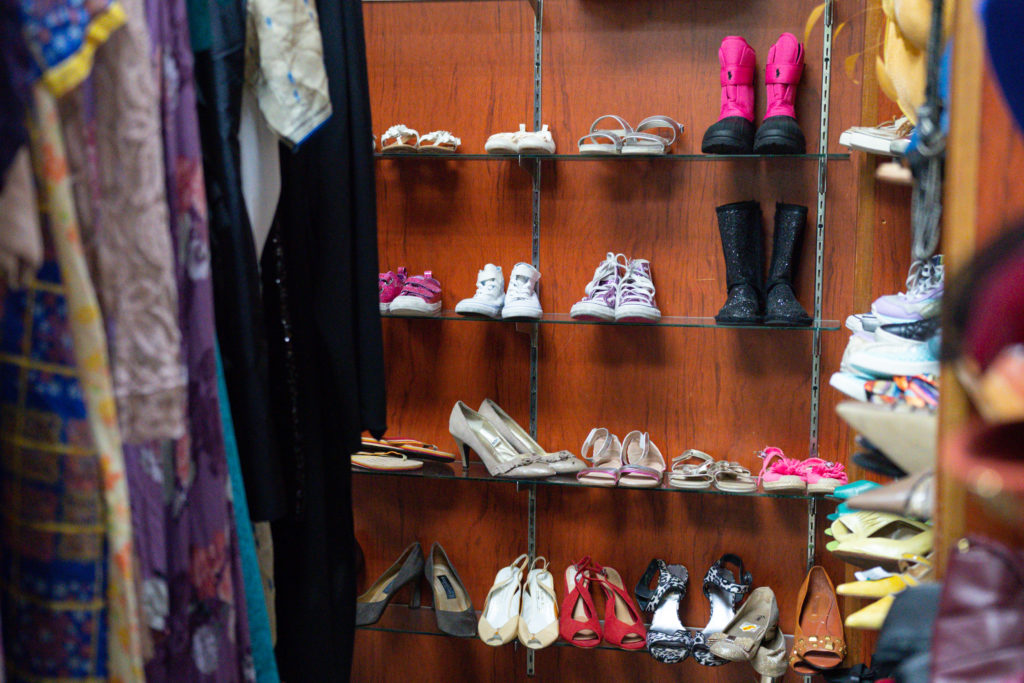

Piloted by visionary alumni and fueled by the unwavering support of donors, both locally and overseas, the USC Thrift ‘N Valley Store has become a beacon of philanthropy and community engagement. Generous contributions of time and resources from USC alumni and friends have played a pivotal role in the store’s evolution, embodying a spirit of dedication and commitment to the university’s mission.
With over $90,000.00 in sales generated to date, the Thrift ‘N Valley Store stands as a testament to USC’s commitment to educational excellence and holistic student development. All proceeds from the store are directed towards student scholarships or other projects specified by donors, furthering the university’s mandate to nurture the “head, heart, and hand” of its community.
Moreover, the store has provided invaluable opportunities for student involvement, offering job training, internships, and practical skill development that complement the academic journey of USC students. This holistic approach to education underscores USC’s dedication to preparing students for success beyond the classroom.
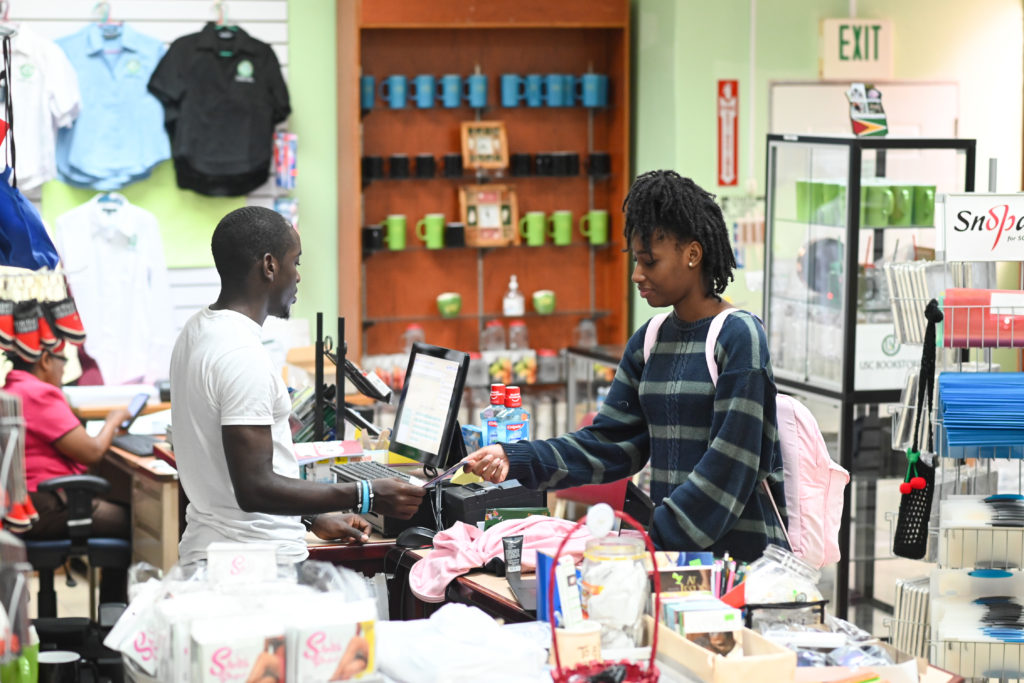
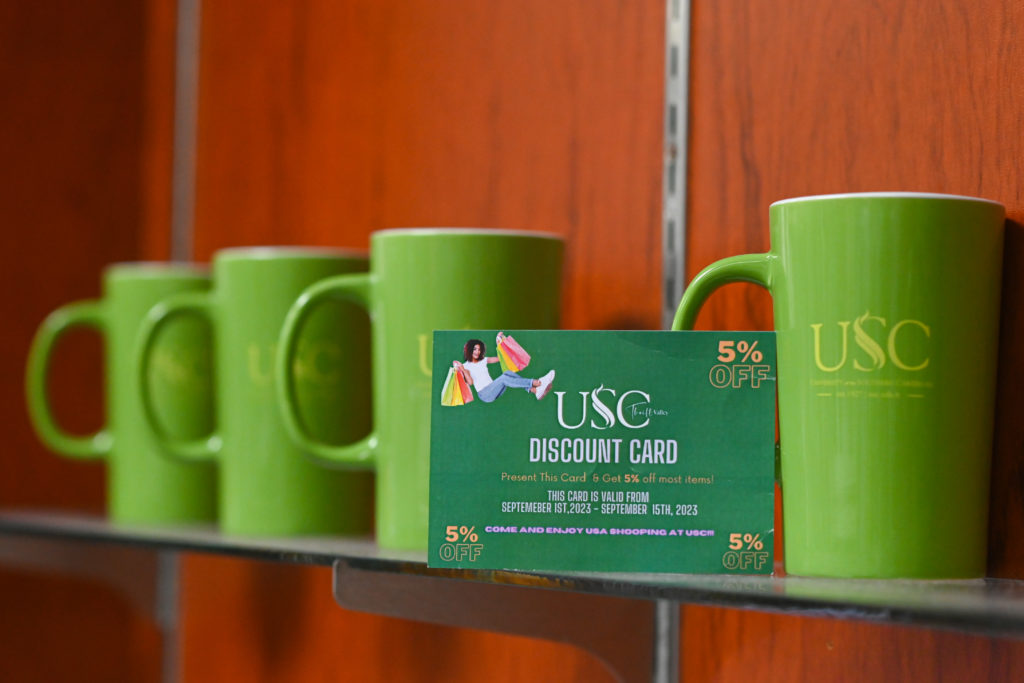
As renovations are underway to transform the new 2000 plus square feet facility into a welcoming hub for shoppers and donors alike, anticipation builds within the USC community for the grand reopening of the KindHearted Thrift ‘N Valley Store at its new location. With its relocation, the store is poised to continue its legacy of fostering sustainability, supporting educational excellence, and empowering students to reach their fullest potential.
As the USC community eagerly awaits the unveiling of the revamped Thrift ‘N Valley Store, the spirit of philanthropy and camaraderie continues to thrive, echoing the university’s ethos of going beyond excellence in all endeavors.
- Published in News, Office of the President
University of the Southern Caribbean Invests in Farming Equipment for Economic Diversification
By Sharon De Freitas, Director of Business Development & Simone Augustus, Corporate Communications Officer
The University of the Southern Caribbean (USC) continues to make strides in its agricultural pursuits with the recent acquisition of several pieces of equipment aimed at enhancing its farming operations. Situated on the sprawling three hundred plus acre estate known as La Realista, nestled in the lush Maracas Valley, USC has embarked on a journey to leverage its natural resources for economic sustainability and academic enrichment.
Since its acquisition by the Seventh-day Adventist Church in 1927, La Realista has served as the heart of USC’s academic endeavors, accommodating over 1200 students amidst its tranquil and fertile surroundings. However, USC’s vision extends beyond nurturing the human mind; the institution is equally committed to cultivating the land it occupies.
In 2023, USC took a significant step towards diversifying its income streams by registering its estate with the Ministry of Agriculture’s farmers program, culminating in the issuance of a farmer’s license early that year. This pivotal development opened doors to government subsidies, grants, and technical support, empowering USC to expand its agricultural activities.



Building upon this foundation, USC recently invested in several pieces of cutting-edge agricultural equipment, including a mulcher, drive-on grass cutter, and an electric utility vehicle.
The rationale behind these investments is straightforward: to leverage the abundant resources at USC’s disposal for sustainable agricultural practices. USC has embraced the ethos of cultivating not only the human mind but also the fertile lands it possesses. Just as plants require time, inputs, and effort to thrive, USC recognizes that nurturing ideas and initiatives demands similar dedication and resourcefulness.
Dr. Colwick Wilson, President of USC, has demonstrably emphasized the institution’s commitment to achieving financial sustainability through prudent investments and strategic initiatives. The acquisition of state-of-the-art equipment represents a significant step towards realizing this vision, as USC continues to explore innovative avenues for growth and development. The newly acquired equipment was dedicated on Wednesday, March 27, 2024 by Dr. Colwick Wilson – President, USC; Dr. Kern Tobias – President, CARU; Ps. Johnson Frederick – Executive Secretary, CARU; and Ps. Bertie Henry – Treasurer, CARU.
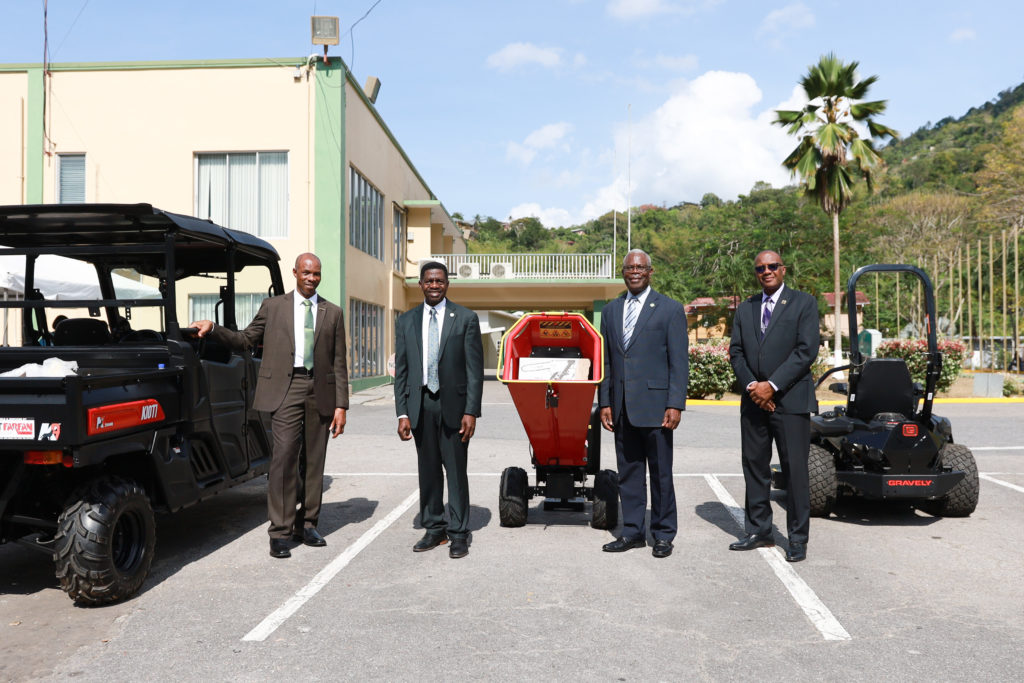
With the cultivation of short crops such as cabbages, tomatoes, and patchoi already underway, USC’s agricultural endeavors are poised for further expansion and success. By harnessing the potential of its La Realista estate and embracing a holistic approach to sustainability, USC reaffirms its dedication to excellence in both academia and agriculture.
As USC forges ahead on its journey towards economic self-sufficiency, the acquisition of agricultural equipment stands as a testament to the institution’s resilience, ingenuity, and unwavering commitment to creating a brighter future for generations to come.
- Published in News, Office of the President
Exploring the Nexus of Spirituality, Forgiveness, and Health: Highlights from the USC Research Conference 2024
By Simone Augustus, Corporate Communications Officer
In a convergence of academia, spirituality, and health, the University of the Southern Caribbean (USC) hosted its inaugural research conference on March 7-8, 2024. Held at the Social Sciences Auditorium on USC’s Main Campus, the event welcomed over 400 attendees, both in-person and virtually, to delve into the theme of “The Scientific Contribution of Spirituality/Religion on Health & Well-Being,” with a special emphasis on “Forgiveness & Health: A Human Flourishing Perspective.”
The conference commenced with an inspiring Opening Ceremony featuring esteemed Guest Speaker, The Honorable Terrance Deyalsingh, Minister of Health, Trinidad and Tobago. Minister Deyalsingh’s address delved into the profound implications of spirituality and religion on healthcare, challenging attendees to reconsider their understanding of these concepts in the context of human well-being.
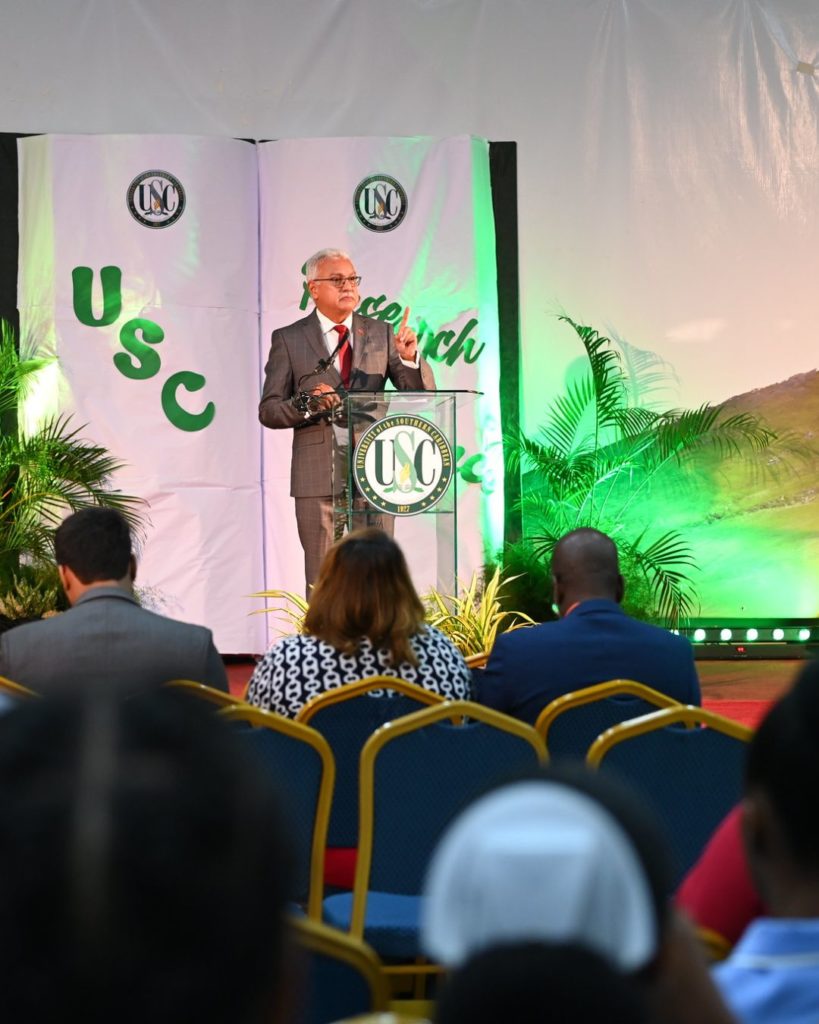
Addressing the audience, Minister Deyalsingh emphasized the constitutional recognition of the supremacy of God in Trinidad and Tobago, highlighting the role of spirituality and religion in shaping individual and collective values. Drawing from personal experiences and scientific literature, he underscored the inseparable connection between spirituality, health, and overall well-being.
Reflecting on the challenges faced during the COVID-19 pandemic, Minister Deyalsingh shared insights into the role of spirituality and religiosity in coping with crisis situations.
He stressed the importance of adopting a wellness approach to health, encompassing physical, mental, and spiritual dimensions, and urged attendees to treat their bodies as temples through healthy lifestyle choices.
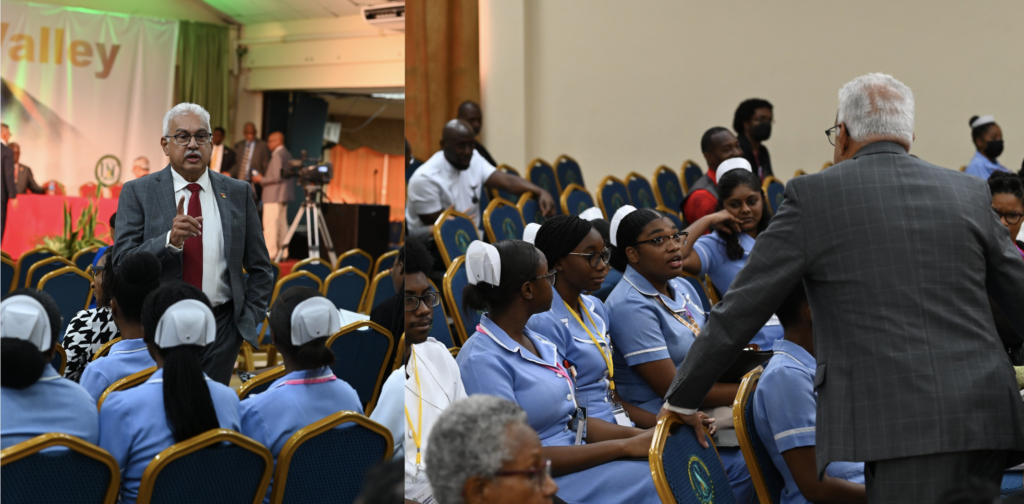
Throughout the conference, attendees were treated to enlightening keynote addresses from renowned scholars in their respective fields.
The Scientific Contribution of Spirituality/Religion on Health & Well-Being
Dr. David R. Williams, Norman Professor of Public Health at Harvard University, illuminated the historical and contemporary significance of religious involvement in promoting physical and mental well-being. His comprehensive overview delved into the complex interplay between religiosity and health outcomes, highlighting both the benefits and potential drawbacks associated with religious practices.

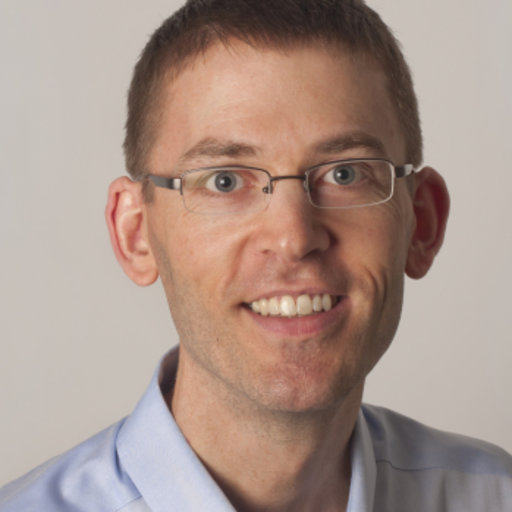
Forgiveness, “Liming”, and Flourishing in Trinidad and Tobago
Dr. Loren L. Toussaint, Professor of Psychology at Luther College, offered a nuanced exploration of forgiveness within the cultural context of Trinidad and Tobago. Drawing upon local traditions of “liming” and social cohesion, Dr. Toussaint underscored forgiveness as a catalyst for personal growth and societal harmony, emphasizing its profound implications for mental and physical flourishing.
Black Immigrant Literacies: Leveraging a Language of Forgiveness for Flourishing
Dr. Patriann Smith, Associate Professor of Literacy Studies at the University of South Florida, delivered a thought-provoking presentation on Black immigrant literacies and the transformative power of forgiveness. Through her interdisciplinary lens, Dr. Smith challenged prevailing narratives and advocated for a more inclusive approach to language and literacy education, rooted in principles of forgiveness and acceptance.
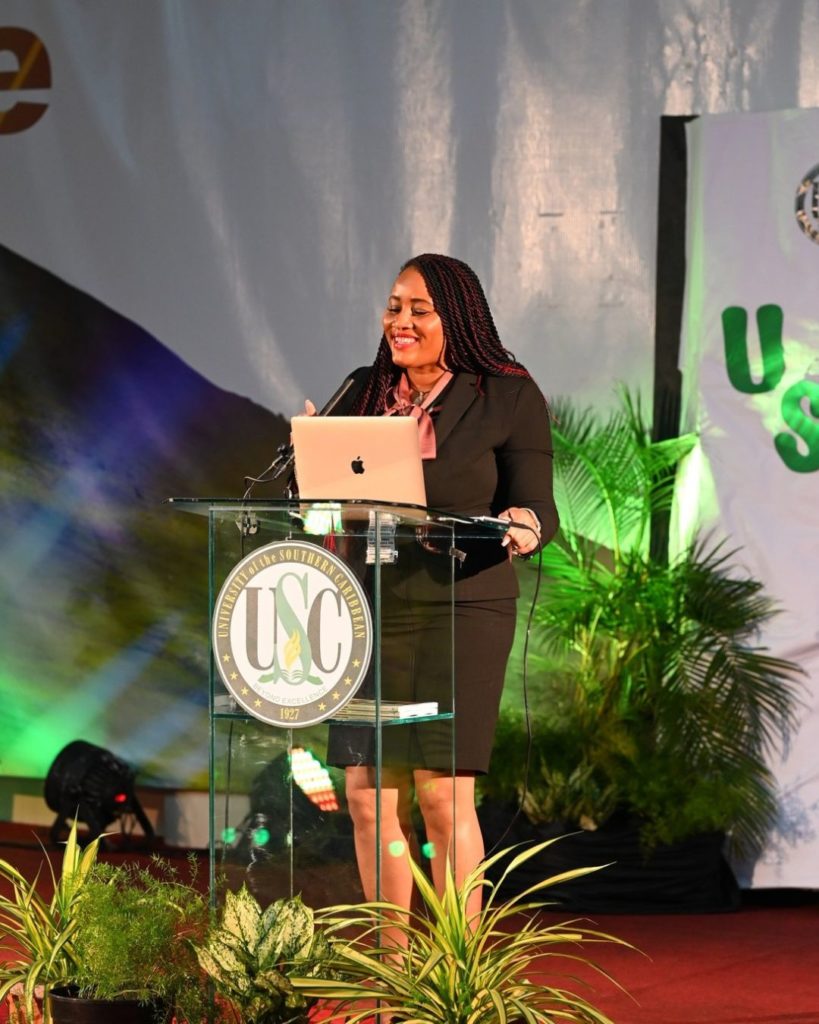
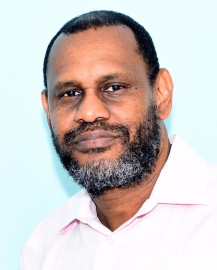
Innovative approaches to Facilitate Health Research in Trinidad and Tobago
Professor Donald T. Simeon, Director of the Caribbean Centre for Health Systems Research and Development, provided insights into innovative approaches to health research in Trinidad and Tobago, highlighting the importance of interdisciplinary collaboration and community engagement in addressing pressing health challenges.
In addition to the keynote addresses, the conference featured presentations from scholars representing esteemed institutions worldwide, including Andrews University, Athens State University, Christian Medical College (Vellore, India), Harvard University, Loma Linda University, Luther College, Morgan State University, Northern Caribbean University, Texas Tech University, University of South Florida, University of the West Indies (St. Augustine), and the West Indies School of Theology. This diverse array of perspectives enriched the dialogue surrounding spirituality, forgiveness, and health, fostering interdisciplinary exchange and collaboration.
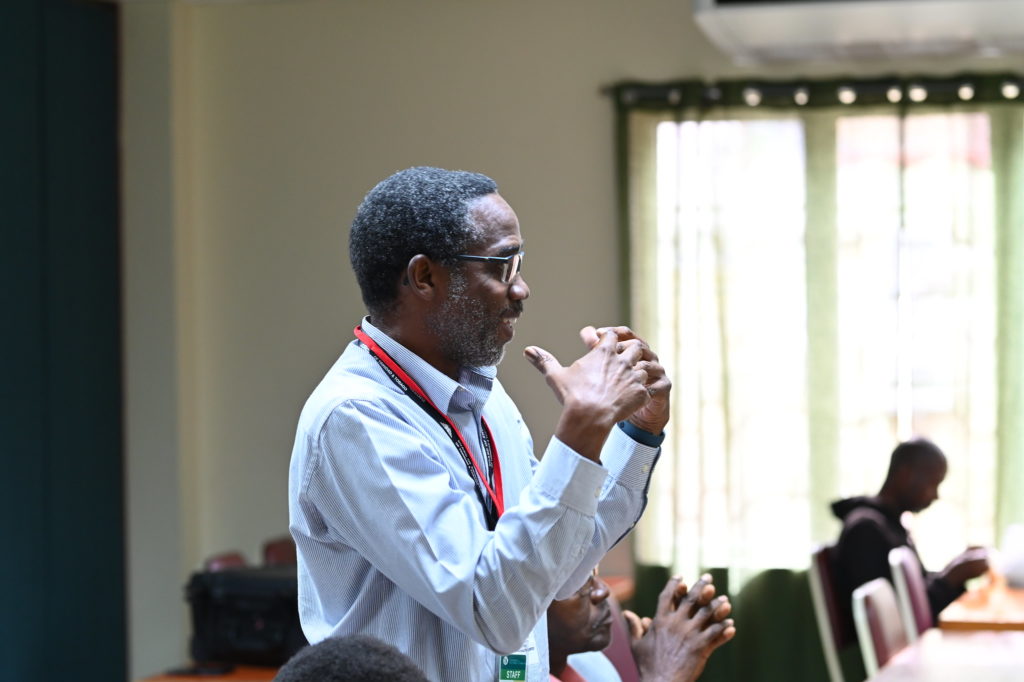
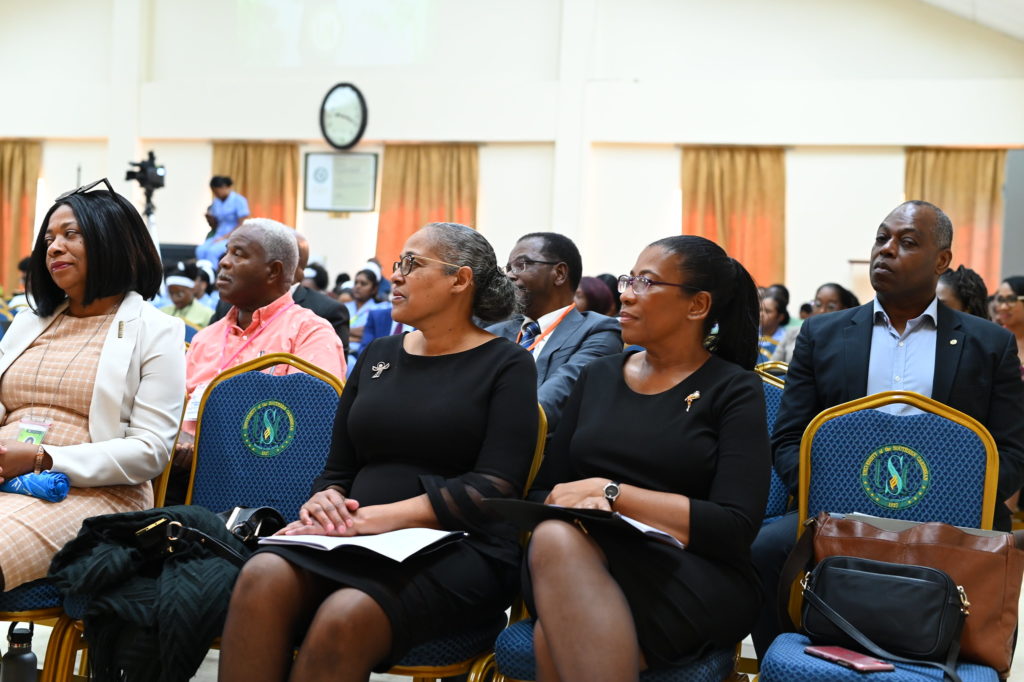
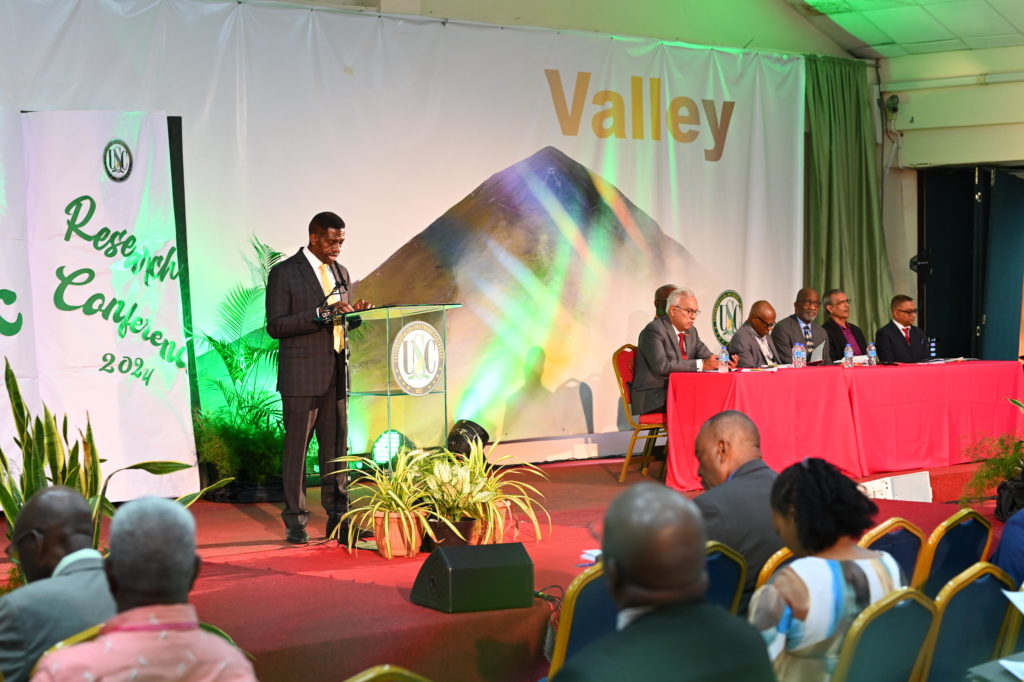
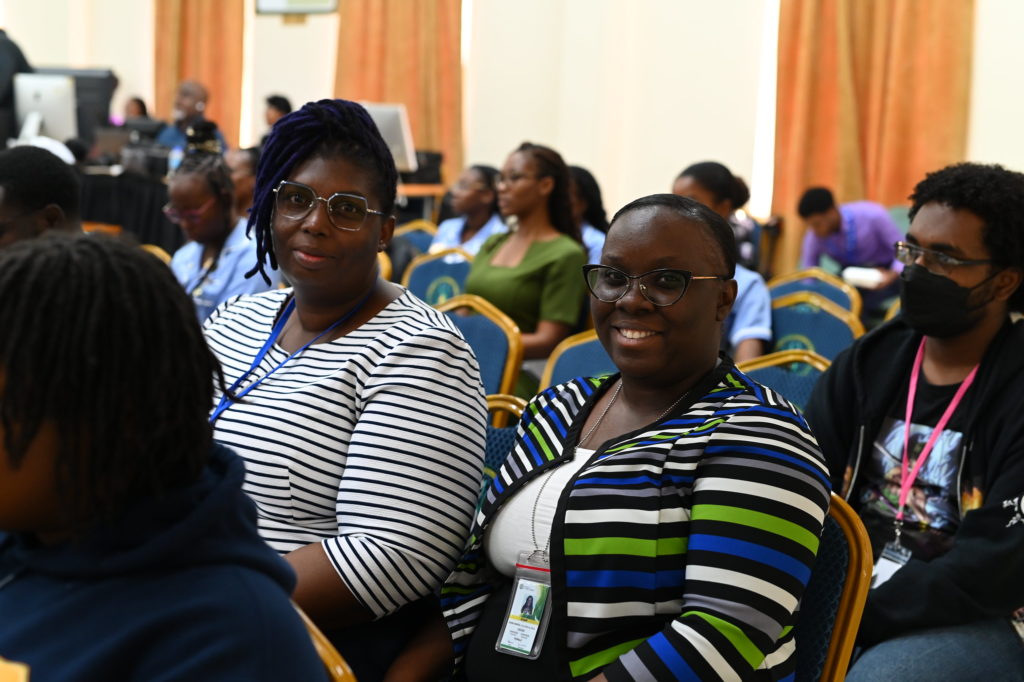
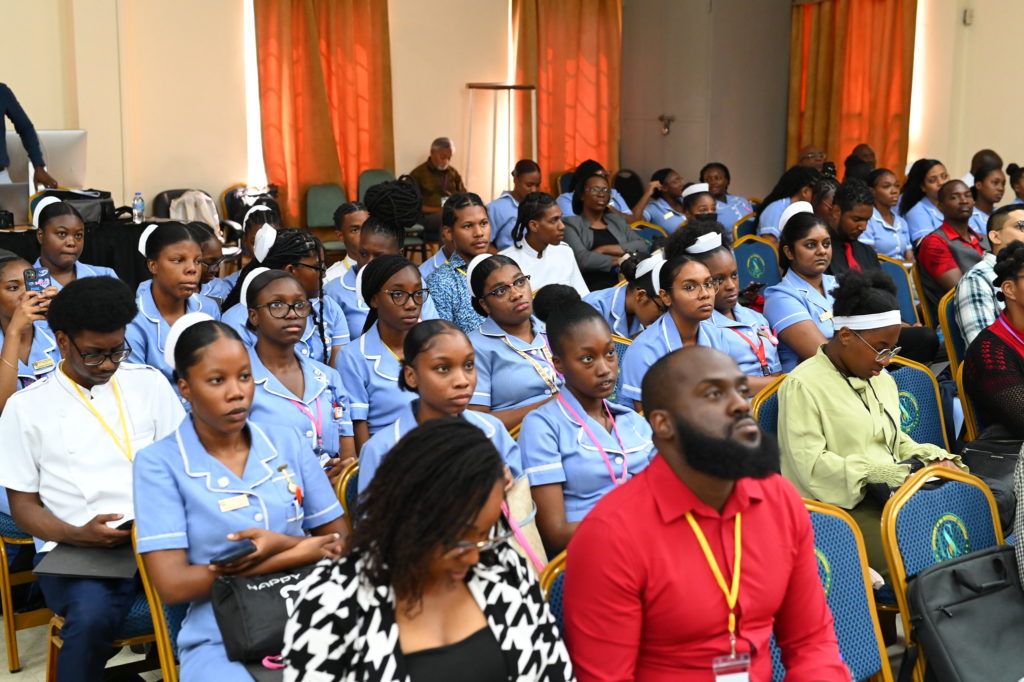
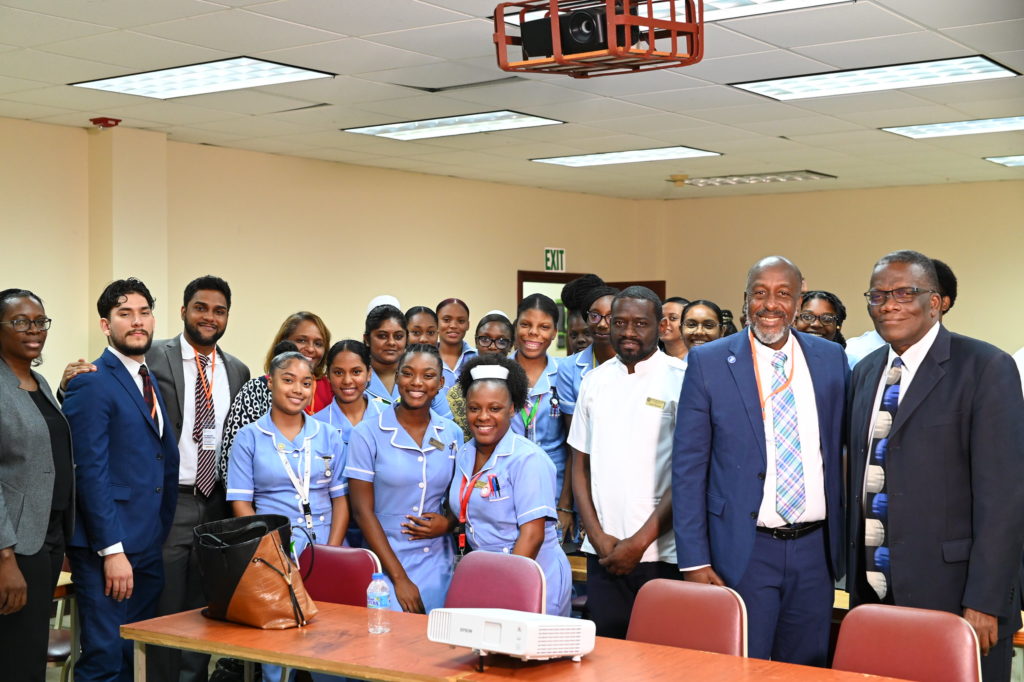
A highlight of the conference was the launch of the David R. Williams Interdisciplinary Center for Health and Well-being, signaling USC’s commitment to excellence in research and education. The center’s multifaceted mandate encompasses advancing research, promoting health equity, fostering education and training, and engaging with local communities to effect meaningful change.
Looking ahead, plans are already underway for the USC Research Conference 2025, which will focus on “Lifestyle, NCDs, and Innovative Research Methodologies in Health and Well-being.” The call for abstracts will open on May 3, 2025, inviting scholars and researchers to contribute to the ongoing dialogue on pressing health issues.
In conclusion, the USC Research Conference 2024 provided a platform for scholars, practitioners, and policymakers to explore the nexus of spirituality, forgiveness, and health from diverse perspectives. As attendees departed, they carried with them not only newfound knowledge but also a renewed sense of purpose in advancing the well-being of individuals and communities worldwide.
View full event album here: https://www.flickr.com/photos/usctt/albums/72177720315291646
Portraits of Excellence Scholarship Pageant 2024: Feeding Hope & Promoting Food Security Across the Caribbean
By Simone Augustus, Corporate Communications Officer
In the heart of Maracas Valley, at the USC Auditorium, a celebration of intellect, compassion, and talent unfolded on Sunday, March 10, 2024.
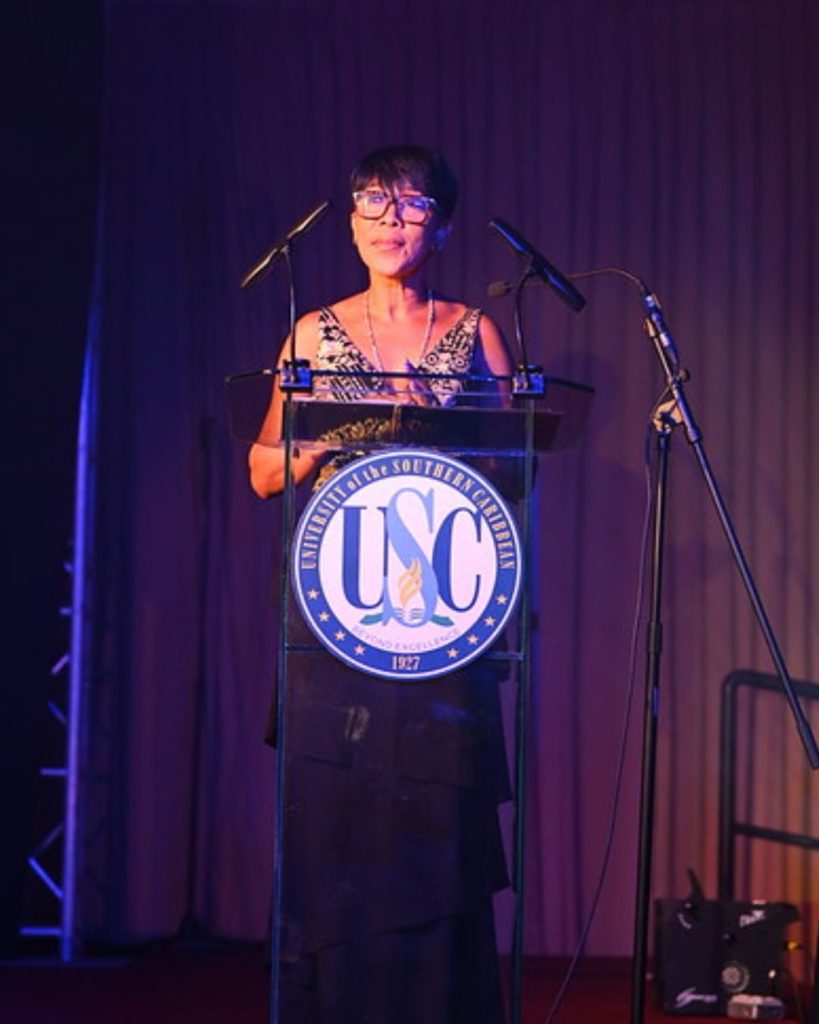
The Portraits of Excellence Scholarship Pageant 2024, graced by the patronage of Mrs. Sharon Clark-Rowley, Attorney and wife of the Prime Minister of Trinidad and Tobago, brought together eight delegates from the University of the Southern Caribbean (USC) to showcase their dedication to academic excellence and community service.
Under the overarching theme of “Fighting Poverty and Hunger: Promoting Food Security in the Caribbean – One Plate at a Time,” the pageant echoed the global call to action embodied in the United Nations Sustainable Development Goals. It was a theme that resonated deeply with the participants, highlighting their commitment to addressing pressing issues facing the region.
The Portraits of Excellence Scholarship Pageant is not merely a one-night affair but a 7-month odyssey, cultivating academic prowess, cultural appreciation, and a profound sense of community service among its delegates. The journey comprises two pivotal components:
Community Projects: At the heart of the Portraits of Excellence journey lies a commitment to community and compassion. Delegates, fueled by a shared purpose, embraced the challenge to make a meaningful impact through community projects. As part of this transformative experience, delegates and their clubs each devoted a minimum of 20 hours to community development initiatives echoing the pageant’s theme. These community development projects, assessed and recorded, play a vital role, contributing 15% to the overall scores of our dedicated delegates. Through their service, these aspiring leaders not only showcased their dedication to positive change but also embodied the USCian spirit of unity, service, and love for humanity.
Research Presentations: On Monday, February 19, 2024, at the Social Sciences Auditorium, our Mr. & Ms. USC hopefuls presented their extensive research projects on the theme “Fighting Poverty and Hunger: Promoting Food Security in the Caribbean – One Plate at a Time”. From tackling the impact of global warming on crop cultivation to innovative strategies for climate-resilient agriculture, our delegates shared insights, discoveries, and solutions for a sustainable future. The USCian spirit was alive with vibrant energy, as students proudly rocked their colors, waved flags, and cheered on their territories. One of several pre-pageant activities, the Portraits of Excellence Research Presentations plays a significant role in determining the delegates’ overall scores. Their written research projects contribute 30% to their final evaluation, and the oral presentations of their research findings contribute another 10% to their overall scores.
As anticipation mounted, the pageant culminated in a dazzling display of talent and cultural pride. From captivating performances to stunning cultural wear presentations, each contestant left an indelible mark on the stage, embodying the rich diversity and vibrancy of Caribbean culture.
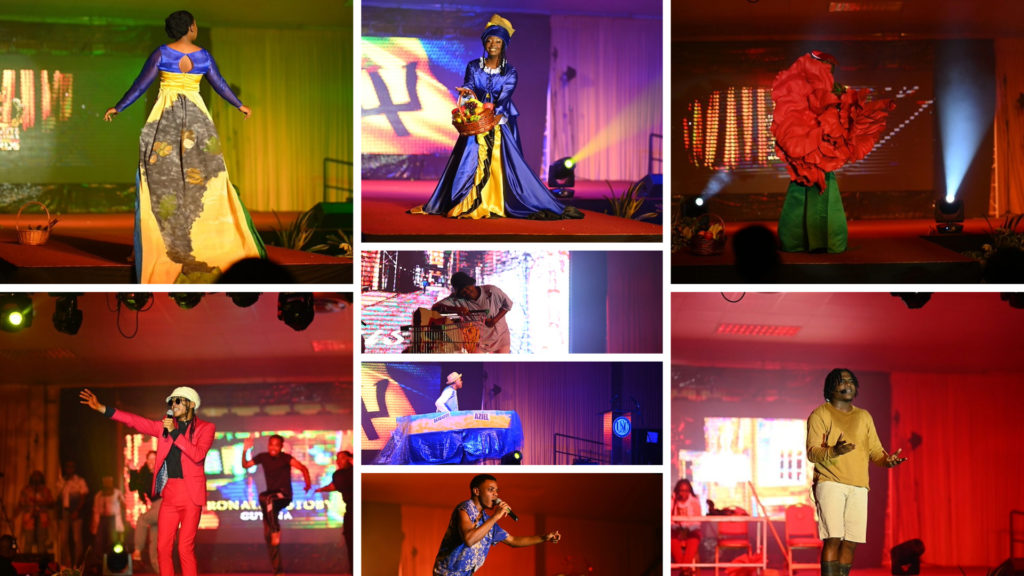
The esteemed panel of judges, comprising luminaries from various fields, including film, academia, poetry, and government, meticulously evaluated each performance.
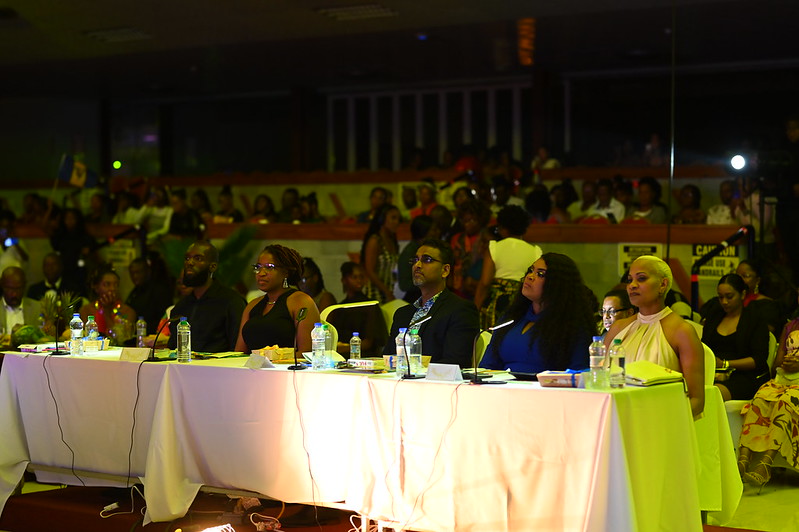
- Mr. Kivonne Ramsawak – Film Director and Editor, Film Production Unit, UWI St. Augustine
- Dr. Deirdre Charles – Director of Student Services and Development, UWI St. Augustine
- Mr. Derron Sandy – Spoken Word Poet, Performer, Creative Education and Artistic Director.
- Mrs. Shamfa Cudjoe-Lewis – Minister of Sport and Community Development, Government of Trinidad & Tobago.
- Ms. Candace Alcantara – USC alumna with over fourteen years of experience in strategic planning, corporate communications, public relations, brand management, event production, media relations, and advertising.
Results & Awards
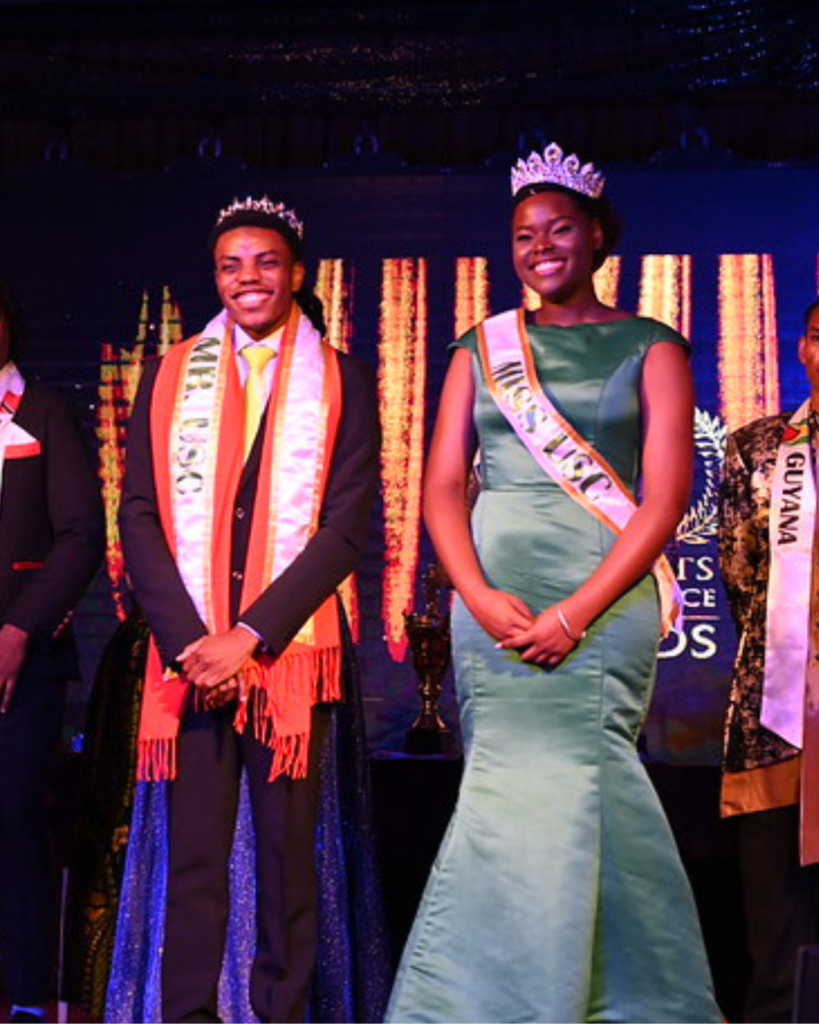
Amidst the electrifying atmosphere, accolades were bestowed upon the deserving. Jerleema Frampton emerged as a beacon of excellence, clinching multiple awards including Best Research Oral Presentation and the coveted title of Ms. USC 2024. Similarly, Juhmaul Belfon, with his exemplary research prowess, secured the title of Mr. USC 2024.
We extend our heartfelt congratulations to all the winners. Collectively, these eight remarkable delegates, exemplified the spirit of excellence, dedication, and community service throughout their journey in the Portraits of Excellence Scholarship Pageant 2024.
- Ms. Jerleema Frampton: Best Research Oral Presentation, Congeniality Award, Best Cultural Wear: Female, and crowned as Ms. USC 2024
- Mr. Juhmaul Belfon: Best Overall Research Award and titled as Mr. USC 2024
- Ms. Shauntae Price & Mr. Aziel Hoyte [Barbados Club]: Best Community Project Award
- Ms. Marica Hector: People’s Choice Award, and 25% Tuition Award
- Mr. Ronaldo Stoby: Best Cultural Wear: Male, and First Runner-up: Male
- Ms. Shauntae Price: Best Talent: Female and First Runner-up: Female
- Ms. Elsa Elvin: 25% Tuition Award
- Mr. Aziel Hoyte: 25% Tuition Award
- Mr. Nkosi Cato: 25% Tuition Award
Yet, beyond the accolades, the Portraits of Excellence Scholarship Pageant 2024 embodied a profound ethos of empowerment and social change. Hosted by USC alumni Mr. Michael Ron Christopher and Mrs. Josann Mulchansigh-Christopher, the event served as a testament to the transformative power of education and the indomitable spirit of the USC community.
As the curtains drew to a close, the Portraits of Excellence Scholarship Pageant 2024 left an indelible mark, inspiring a new generation of leaders committed to shaping a brighter, more equitable future for all.
View Full Album: https://www.flickr.com/photos/usctt/albums/72177720315354375
Exploring the Intersection of Faith and Technology: USC’s 11th Annual Harold Baptiste Lecture Series Investigates AI’s Impact on Modern Evangelism
By Simone Augustus, Corporate Communications Officer
The University of the Southern Caribbean’s School of Theology & Religion (STAR) recently played host to the 11th annual Harold Baptiste Lecture Series, a much-anticipated event that delved into the dynamic interplay between faith and technology. Held on Thursday, February 1, 2024, this year’s theme, “Divine Algorithms?: The Role of AI in shaping Modern Evangelism,” ignited vibrant discussions and profound reflections on the evolving landscape of religious outreach in the digital age.
Dr. Carlos Robles, Vice President of Institutional Effectiveness, Strategic Planning, and Distance Education at the Inter-American Adventist Theological Seminary, delivered a captivating keynote address that explored the transformative potential of artificial intelligence (AI) in contemporary evangelism. Dr. Robles emphasized that AI is not merely a passive tool but a pivotal force for change across various domains. His presentation shed light on the groundbreaking advancements in AI, particularly generative AI, which not only facilitates information retrieval but also generates new knowledge, revolutionizing the dissemination of religious teachings.
Drawing from historical precedents, Dr. Robles traced the profound impact of technological innovations on religious dissemination, from the Gutenberg press to the advent of radio, television, and the internet. He highlighted the emergence of the metaverse, a digital realm where religious rituals, such as baptisms, are conducted, underscoring the unprecedented opportunities and ethical considerations posed by AI integration.
Central to Dr. Robles’ presentation was the call for ethical engagement with AI in religious contexts. He emphasized the need for wisdom and discernment in harnessing AI’s potential, cautioning against biases and hallucinations inherent in AI algorithms. Dr. Robles urged attendees to approach AI integration with a mindset of ethical vigilance, ensuring that technological advancements align with Christian values and contribute positively to human flourishing.
Serving as respondent, Dr. LeRoy Hill, Director of the Centre for Excellence in Teaching and Learning (CETL) at the University of West Indies, St. Augustine, offered valuable insights into the pedagogical and ethical dimensions of AI integration. Dr. Hill’s reflections underscored the profound impact of Dr. Robles’ presentation, prompting profound theological reasoning and ethical considerations among attendees.
The Harold Baptiste Lecture Series holds a special place within the USC community, honoring the enduring legacy of Pastor Harold and Shirley Baptiste, whose commitment to ministry continues to inspire. This year’s lecture series provided a platform for meaningful dialogue and exploration of the evolving relationship between faith and technology, fostering interdisciplinary collaboration and innovation.
As attendees engaged in thought-provoking discussions surrounding the ethical, theological, and practical implications of AI integration, the event served as a catalyst for advancing knowledge and inspiring positive change. Through the Harold Baptiste Lecture Series, the USC community reaffirmed its commitment to embracing technological advancements while upholding timeless values of compassion, empathy, and community. As the boundaries between technology and spirituality blur, the lecture series remains a beacon of intellectual inquiry and reflection, challenging participants to explore new frontiers in the pursuit of spiritual enlightenment and societal transformation.
Spreading Love and Unity: Reflecting on the Blitz Journey 2024
By Simone Augustus, Corporate Communications Officer
On a bright Saturday morning, February 17, 2024, the spirit of unity and devotion echoed through the streets of west Trinidad as the iConnect ministry and students from the University of the Southern Caribbean (USC) embarked on a remarkable journey of faith. Collaborating with the Portraits of Excellence 2024 Delegates, they set out to spread love, minister, and uplift spirits on what would become an unforgettable Blitz journey.
Led by the visionary guidance of Pastor Terry A. John – Vice President for Spiritual Development and Senior Church Pastor, Pkezia Isidore – ASB Director for Spiritual Awareness, Aquisha Akool – iConnect Student Coordinator, and Chaplain Rachel Sealy, the day was meticulously organized to touch the hearts of communities surrounding the Ebenezer SDA, Woodbrook SDA, Sande Grande SDA, Carenage SDA, and Cocorite SDA churches, where they poured out their love and shared their faith with open arms.
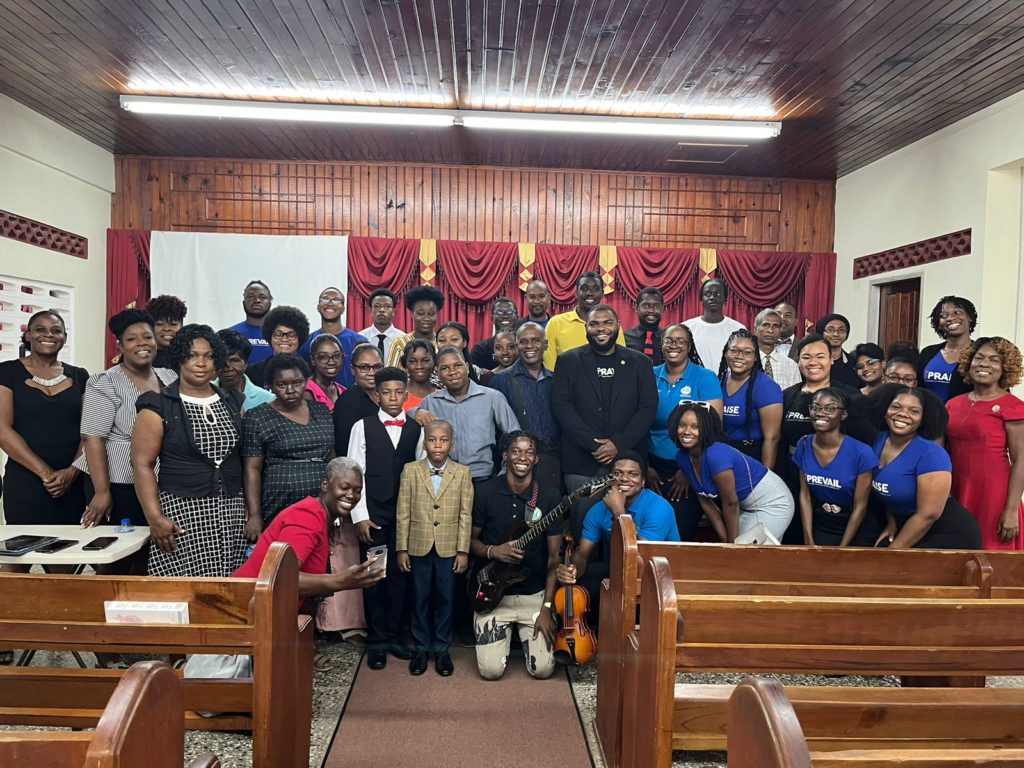
The backbone of the iConnect ministry lies in its branch ministries – iPraise, iProclaim, iPray, iPreach, iProvide, and iPrevail. Each of these ministries played a vital role in making the Sabbath a resounding success. From soul-stirring musical performances by the iPraise ministry to the heartfelt prayers of the iPray ministry, every aspect of the service was infused with passion and purpose. Sermons and lessons were eloquently delivered by the iPreach and iProclaim ministries, inspiring reflections on the unity of the body of Christ, as outlined in 1 Corinthians 12:12-13.
The morning’s services celebrated unity in diversity, with the theme resonating through the Sabbath school feature and the sermon. Participants were reminded that there is no “I” in “team,” emphasizing the collective effort required to share God’s word with the world. It was a powerful reminder that each individual has a unique role to play in the greater mission of spreading love and faith.
As the day unfolded, the spirit of celebration continued to soar during the afternoon’s service at the picturesque Chaguaramas Boardwalk. Congregations from the visited churches and the USC community came together for an open-air AY service, creating a vibrant tapestry of voices and testimonies.
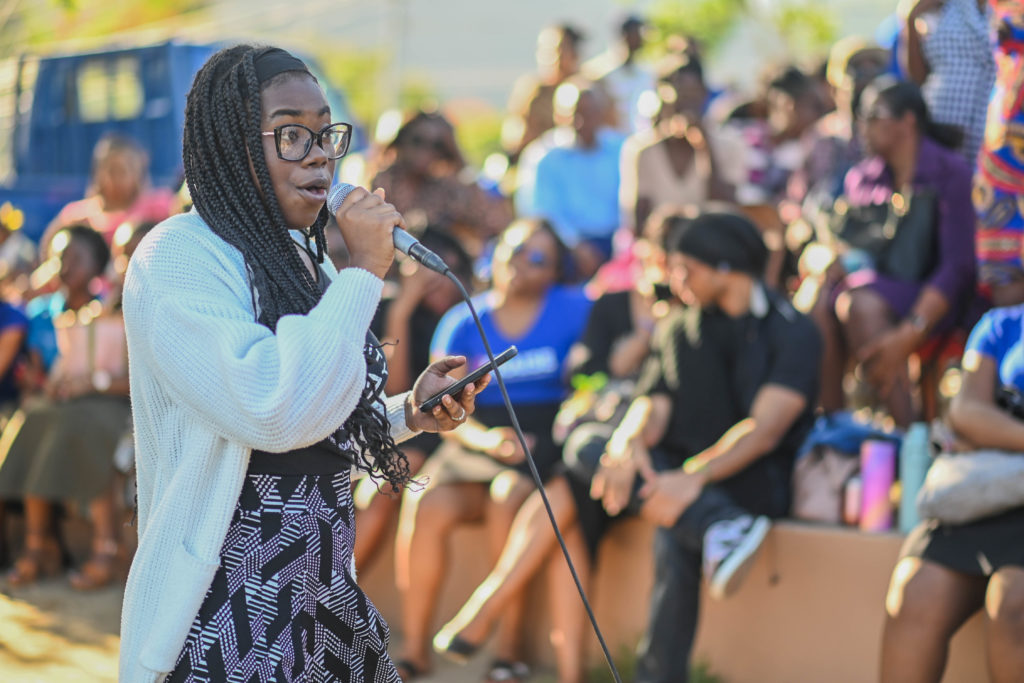
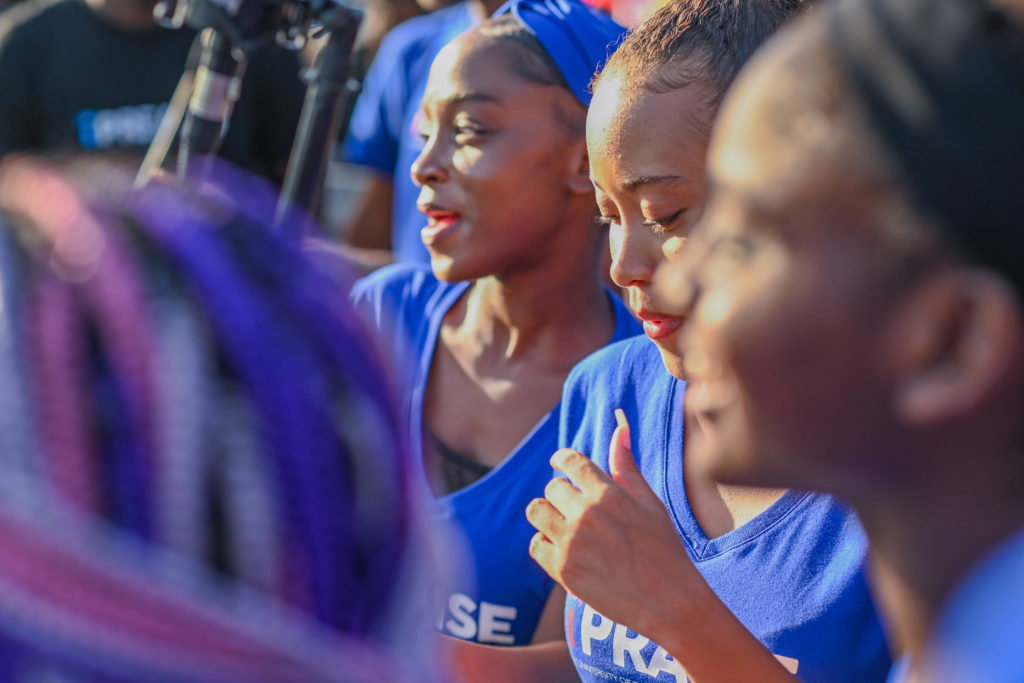
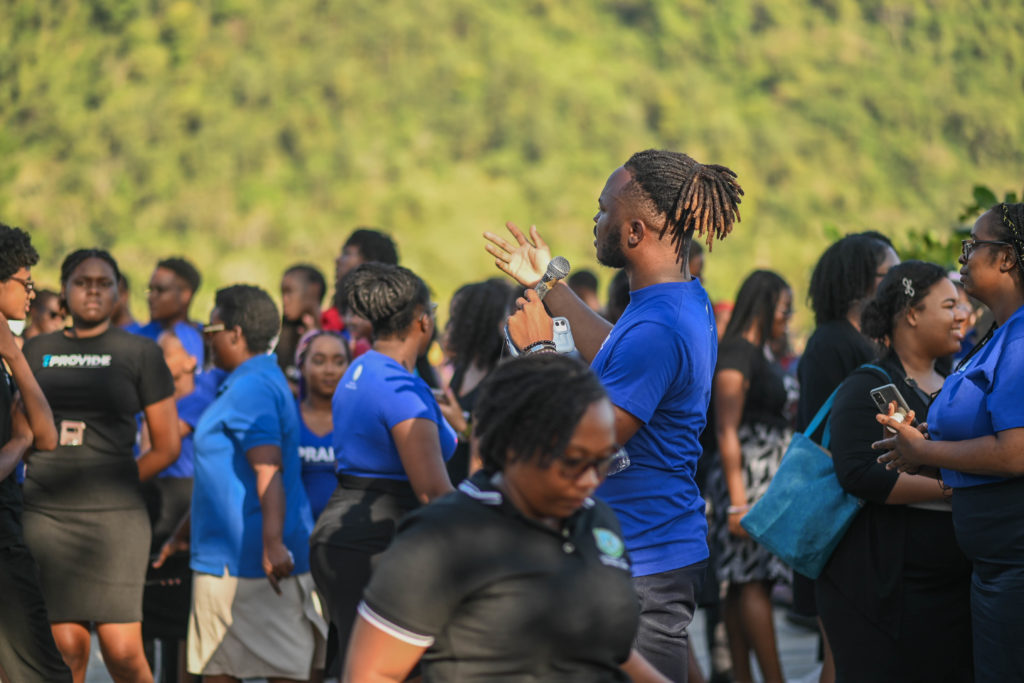
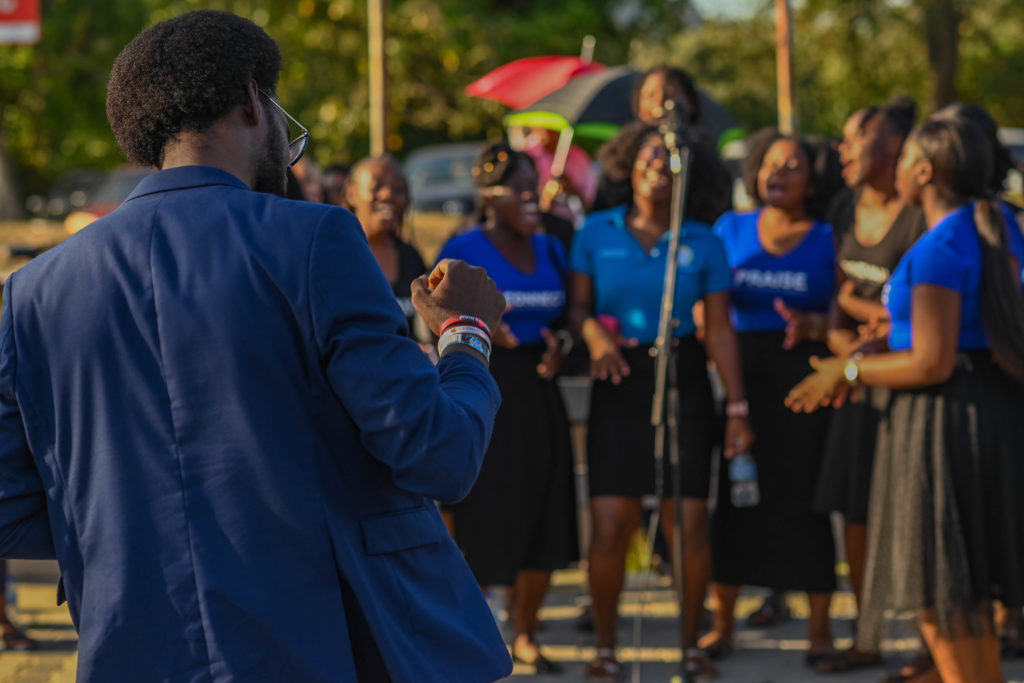
From stirring musical performances by local talents to poignant spoken word pieces and heartfelt testimonials, the atmosphere was charged with love and positivity. The HISLUV choir and Kahlan Roach from USC added their voices to the chorus of praise, uplifting spirits and spreading joy.
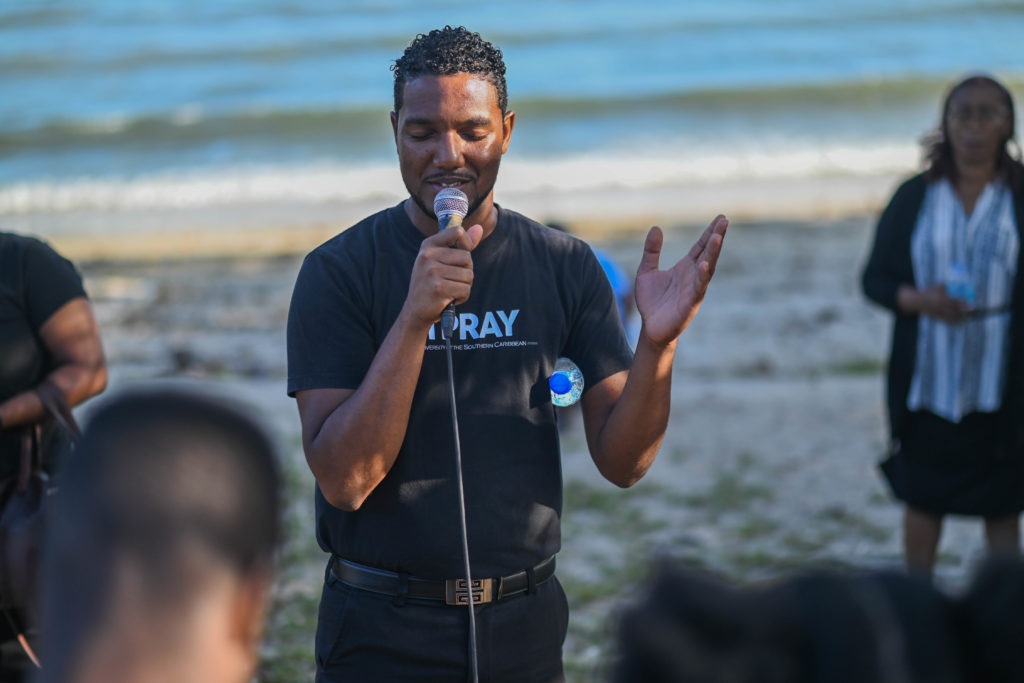
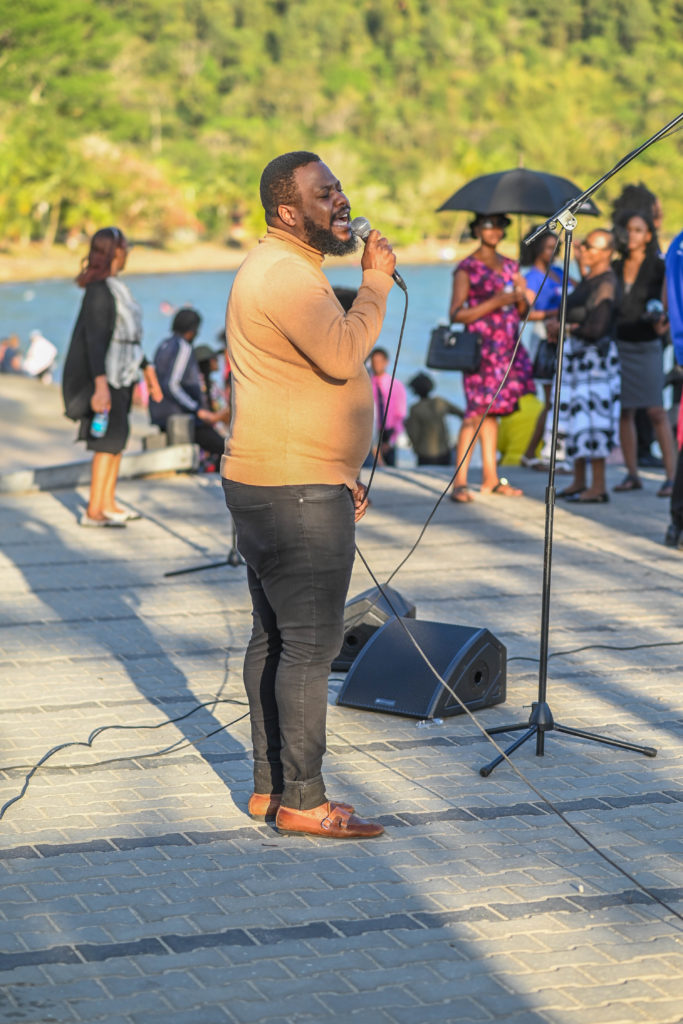
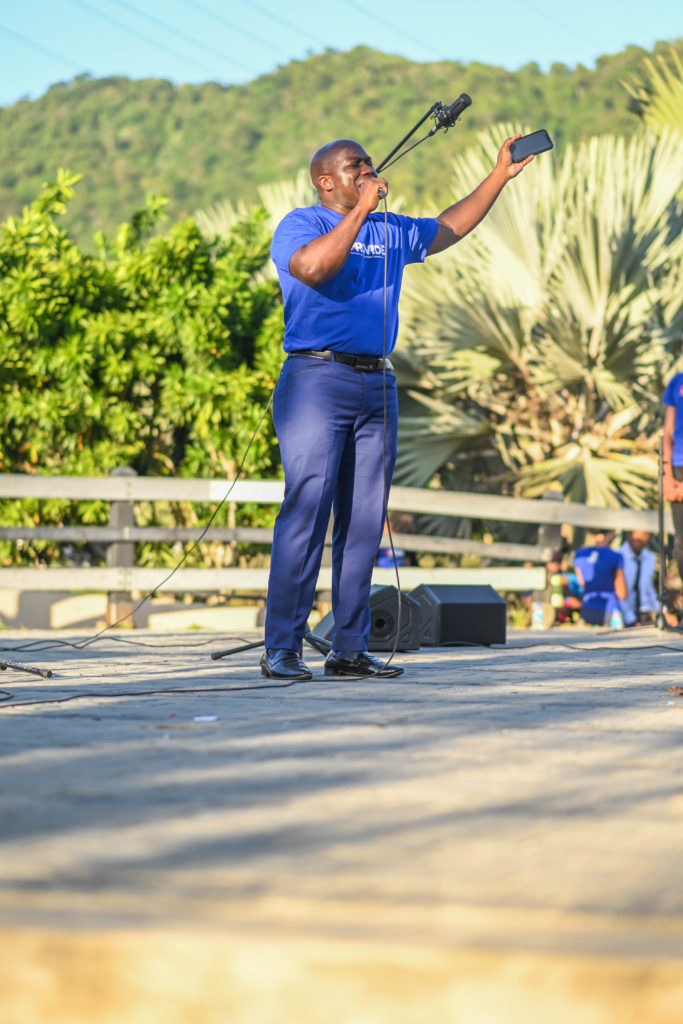
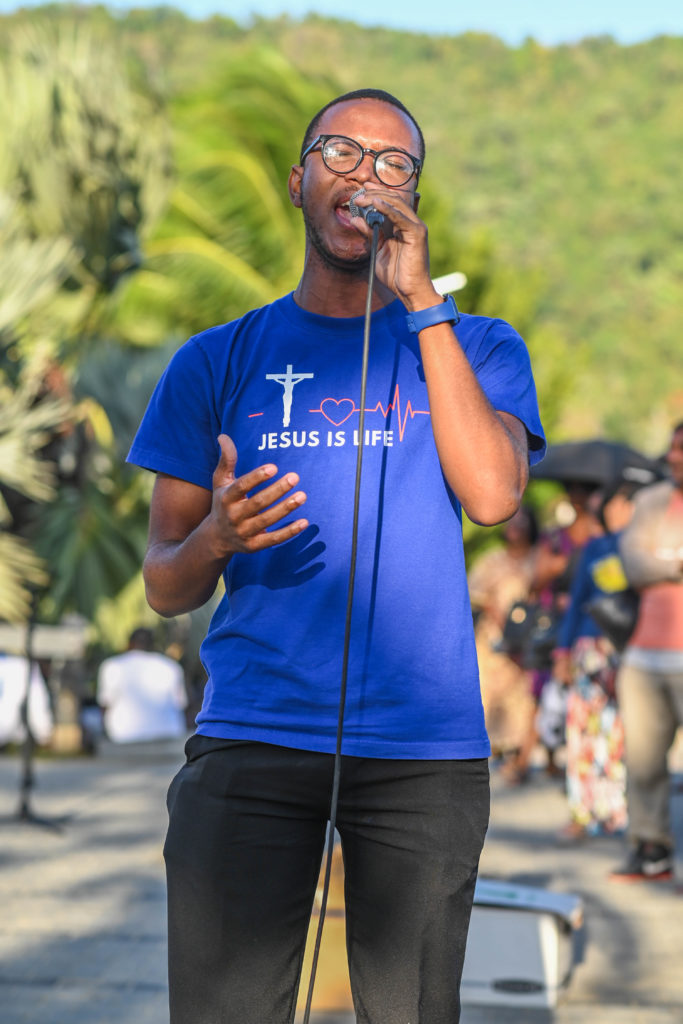
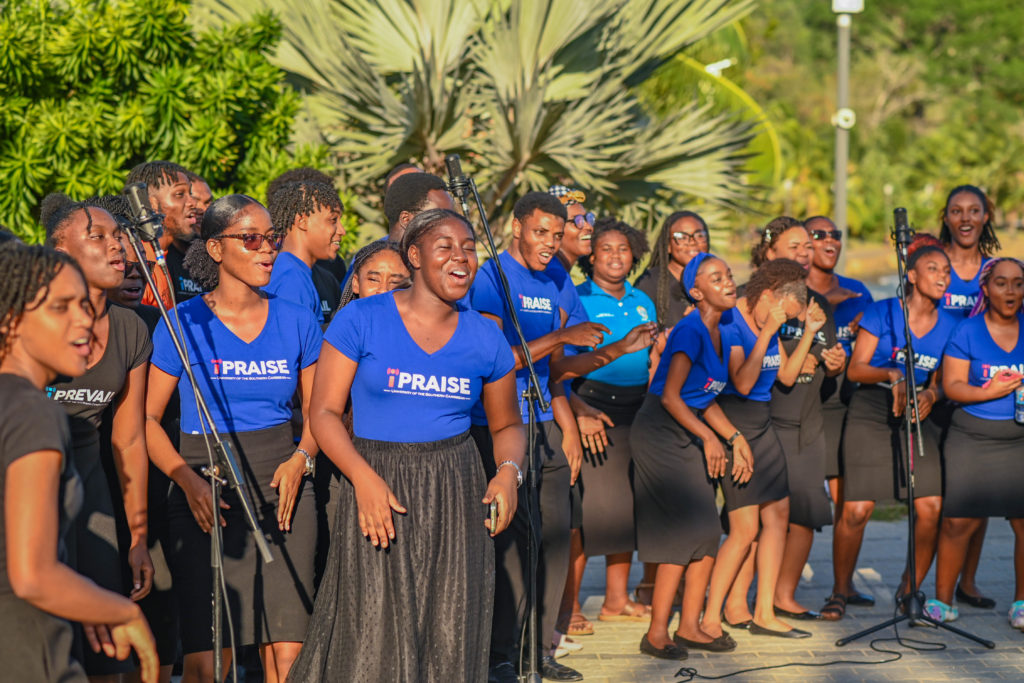
Pastor John concluded the evening service with a powerful message, leaving a lasting impression on all who attended. As the day drew to a close, hearts were filled with gratitude for the fellowship shared and the spiritual nourishment received. The Blitz Journey of 2024 was more than just a day of ministry and praise; it was a testament to the transformative power of unity, love, and collective action in spreading God’s love to the world. It was an experience that will undoubtedly leave a lasting impression on the hearts and minds of all who were fortunate enough to be a part of it.
View full album here: https://www.flickr.com/photos/usctt/albums/72177720314996600
Delving into Innovation and Intellect: The Portraits of Excellence Research Presentations 2024
By Simone Augustus, Corporate Communications Officer
The University of the Southern Caribbean (USC) recently hosted the Portraits of Excellence Research Presentations 2024, a captivating showcase of the academic prowess and innovative thinking of Portraits of Excellence’s distinguished 2024 delegates. Held on Monday, February 19, 2024, in the Social Sciences Auditorium and live-streamed on YouTube, the event set the stage for the upcoming Portraits of Excellence Scholarship Pageant 2024.
The Portraits of Excellence Scholarship Pageant 2024 is a comprehensive seven-month program designed to celebrate the diverse talents and achievements of USC’s students. Throughout this period, a series of pre-pageant events, including professional development workshops and community service projects, are held to assess and record the delegates’ academic excellence, cultural awareness, and commitment to community service. Scores from these pre-pageant events and the final pageant itself, will contribute to the selection of scholarship awardees and the coveted titles of Mr. & Ms. USC.
Research Presentations: A Pinnacle Pre-Pageant Event
Among these pre-pageant events, the Research Presentations hold a special place, providing delegates with a platform to delve into critical issues aligned with the theme: “Fighting Poverty and Hunger: Promoting Food Security in the Caribbean – One Plate at a Time.” Delegates embarked on extensive research projects addressing these challenges, with their written submissions contributing to 30% of their overall scores. The live Research Presentations, witnessed by an enthusiastic audience, contribute another 10% to the delegates’ scores.
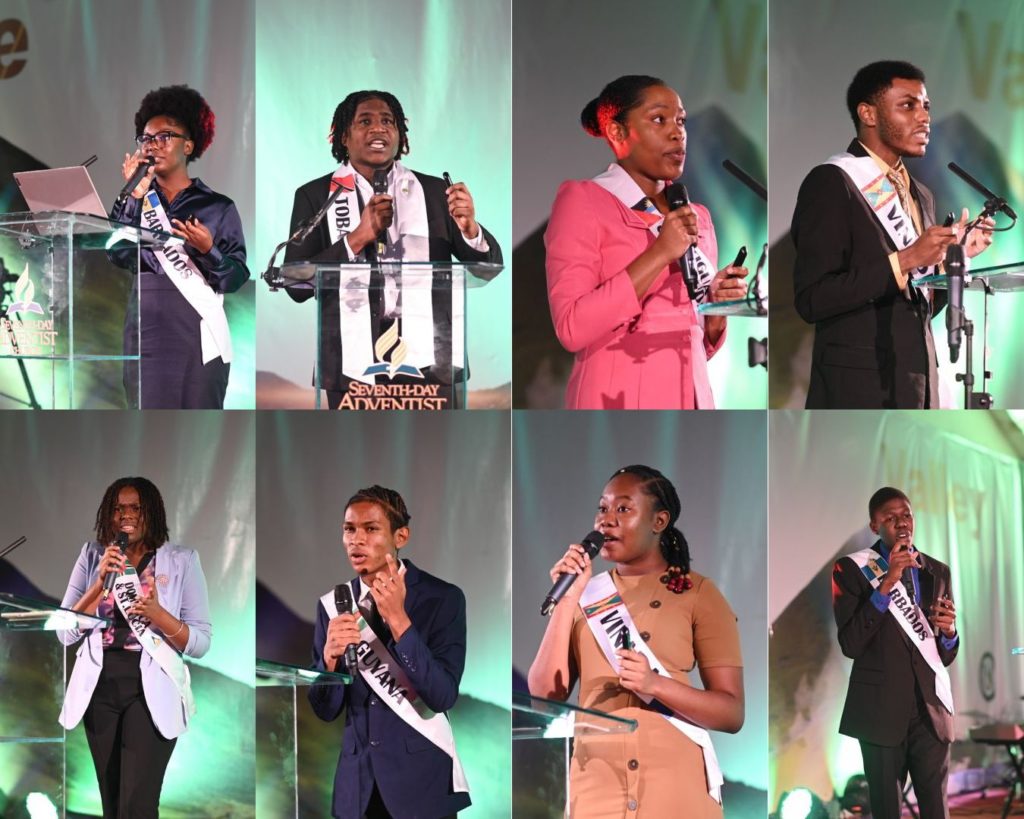
Insights and Innovations:
Centered around the theme of combating poverty and hunger in the Caribbean, each delegate shared profound insights, discoveries, and potential solutions aimed at making a positive impact in the community and beyond. The presentations reflected a deep commitment to addressing critical issues that align with the United Nations Sustainable Development Goals of No Poverty and Zero Hunger.
The eight delegates, representing diverse territories and cultural backgrounds, delved into the multifaceted aspects of the theme, offering fresh perspectives and innovative strategies to combat food insecurity and promote sustainable development.
From a compelling analysis of the impact of global warming on crop cultivation in Barbados to an exploration of sustainable farming practices in Dominica, each presentation was a testament to the delegates’ dedication and intellectual prowess. Through meticulous research and eloquent presentations, they offered glimpses into a future where poverty and hunger are mere relics of the past.
USCian Spirit: Colors, Flags, and Friendly Rivalry:
The USCian spirit was vibrant in the Social Sciences Auditorium, with students proudly donning their colors, waving flags, and passionately representing their territories. The atmosphere was charged with friendly rivalry and energetic support as students cheered on their delegates, setting the stage for an exciting culmination on Sunday, March 10, 2024.
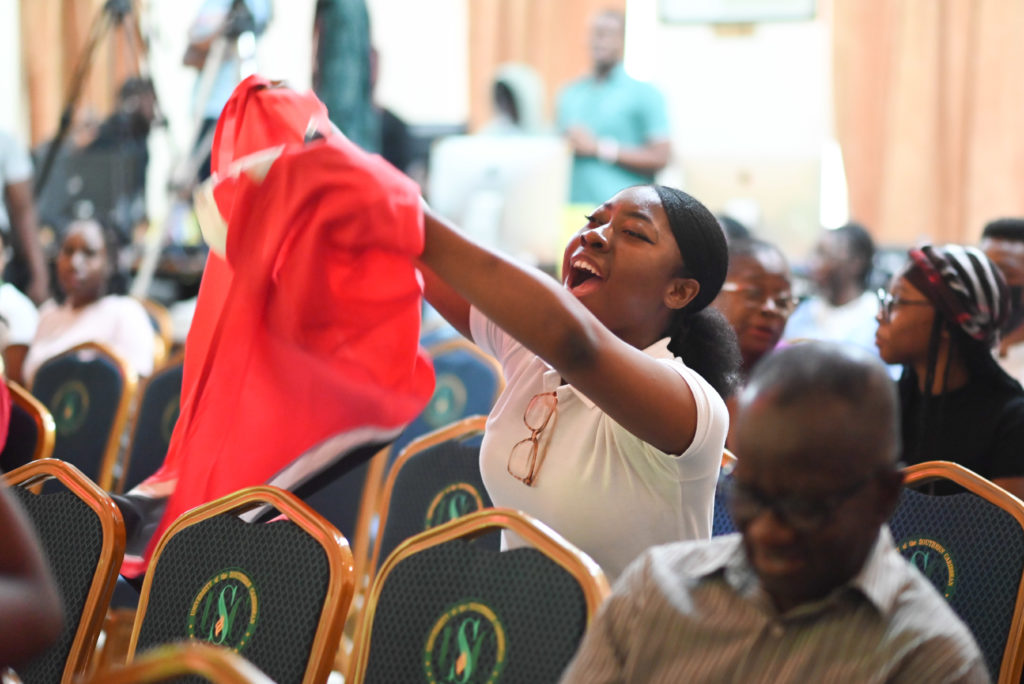
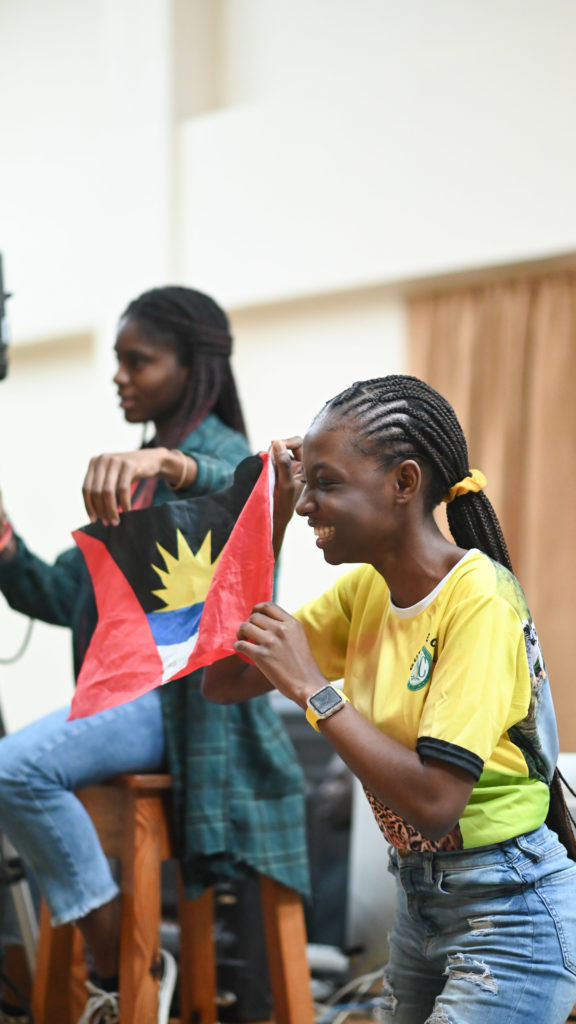
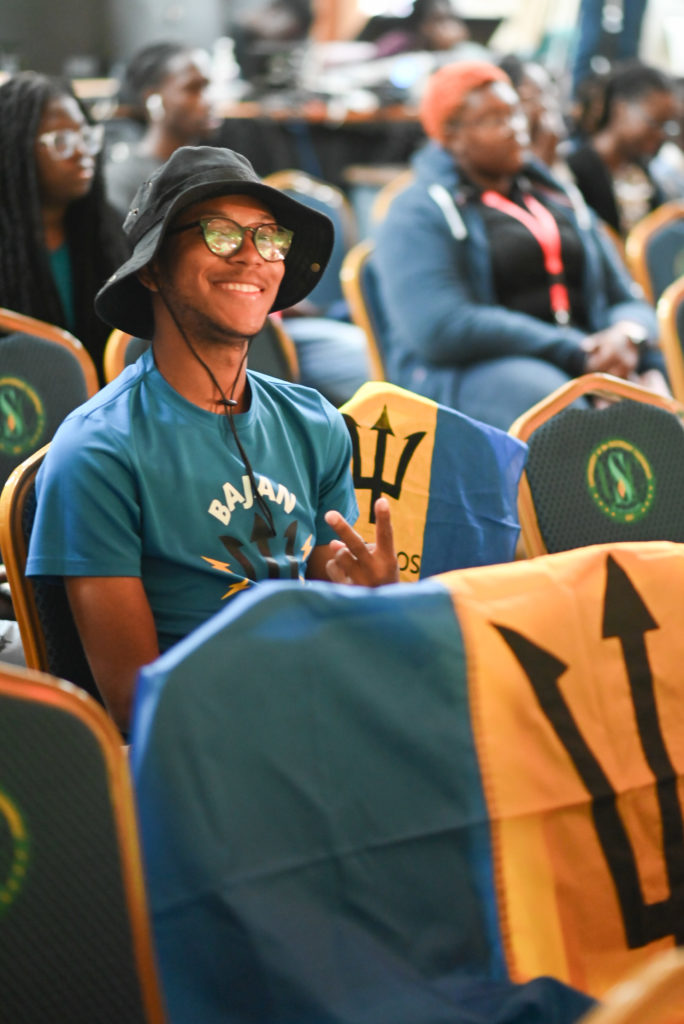
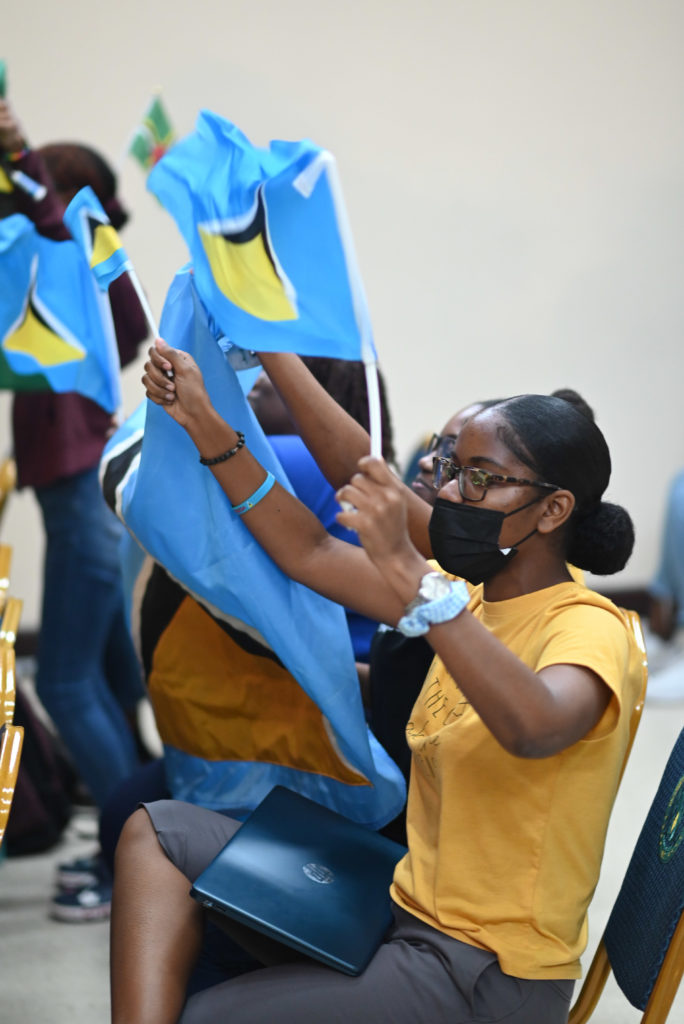
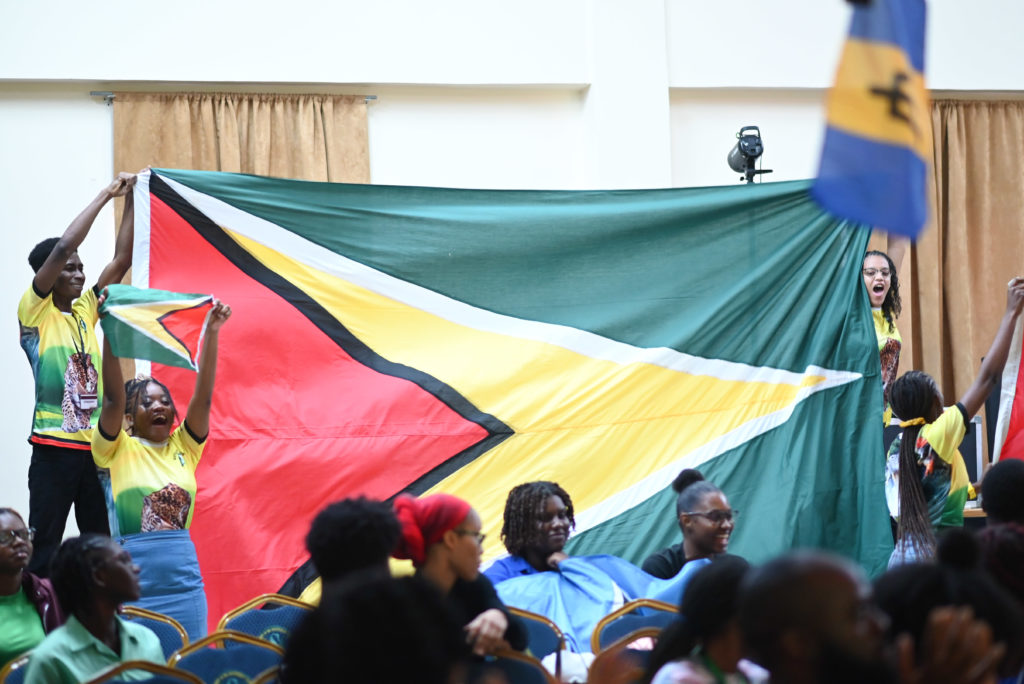
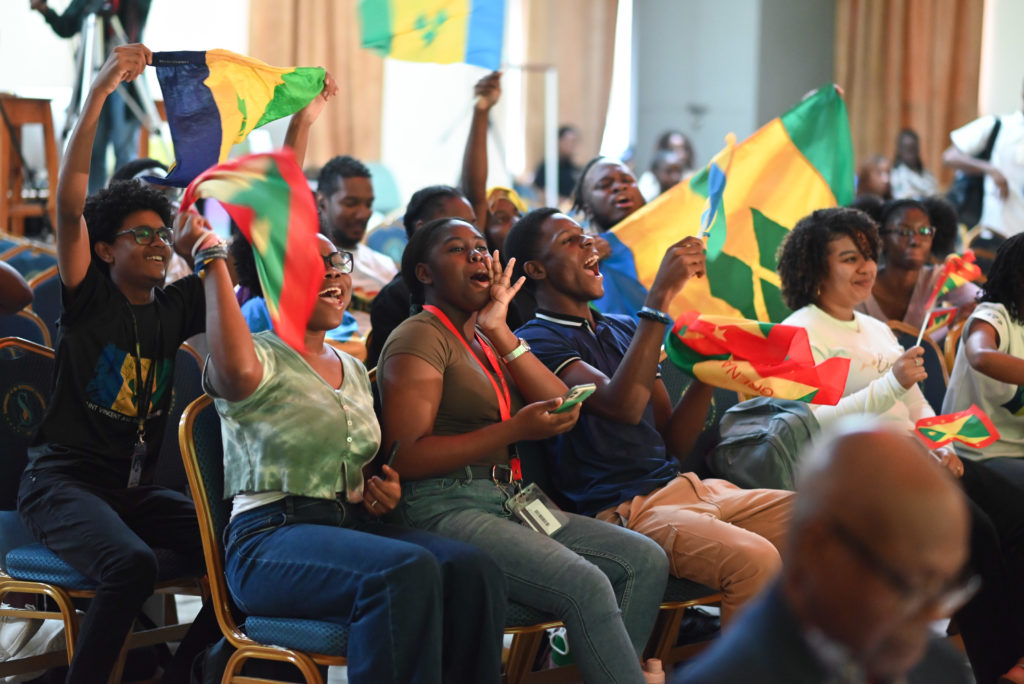
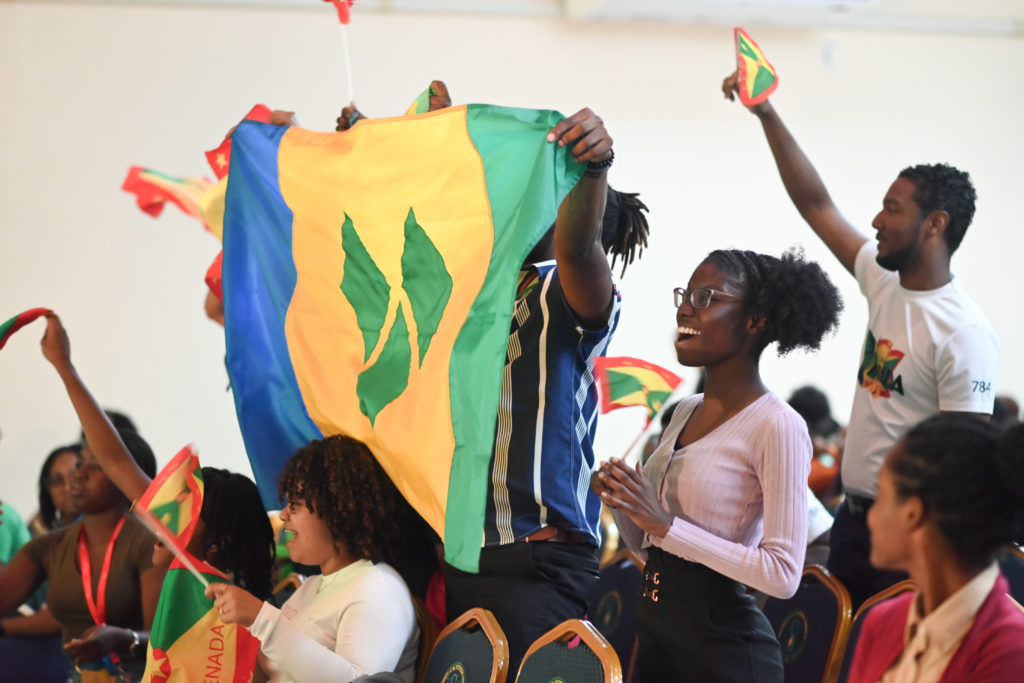
As the excitement builds toward the grand finale, learn more about the Portraits of Excellence Scholarship Pageant 2024 and meet our exceptional delegates, visit usc.edu.tt/poe. Stay tuned for a night of celebration, talent, and positive change as the USC community rallies behind its delegates to make a lasting impact.
View the Portraits of Excellence Research Presentations 2024 event album here: tinyurl.com/yc4ynmx6
- Published in Events, News, Uncategorized
Glow Fest Lights Up Freshmen Social at USC
By Simone Augustus, Corporate Communications Officer
On Thursday, February 8, 2024, the University of the Southern Caribbean (USC) administration car park was transformed into a vibrant spectacle as students gathered for the eagerly anticipated Freshmen Social: Glow Fest. From 8:30 pm to 11:00 pm, the campus came alive with music, laughter, and the luminous glow of neon colors, marking the beginning of an unforgettable tradition for both new and returning USCians.
Freshmen Social is a biannual event deeply ingrained in the fabric of USC’s academic calendar. Held at the onset of each semester, it serves as a rite of passage for incoming freshmen while offering a well-deserved break for seasoned students amidst their academic endeavors. This longstanding tradition not only welcomes new faces to the USC community but also fosters a sense of unity and camaraderie among all attendees.
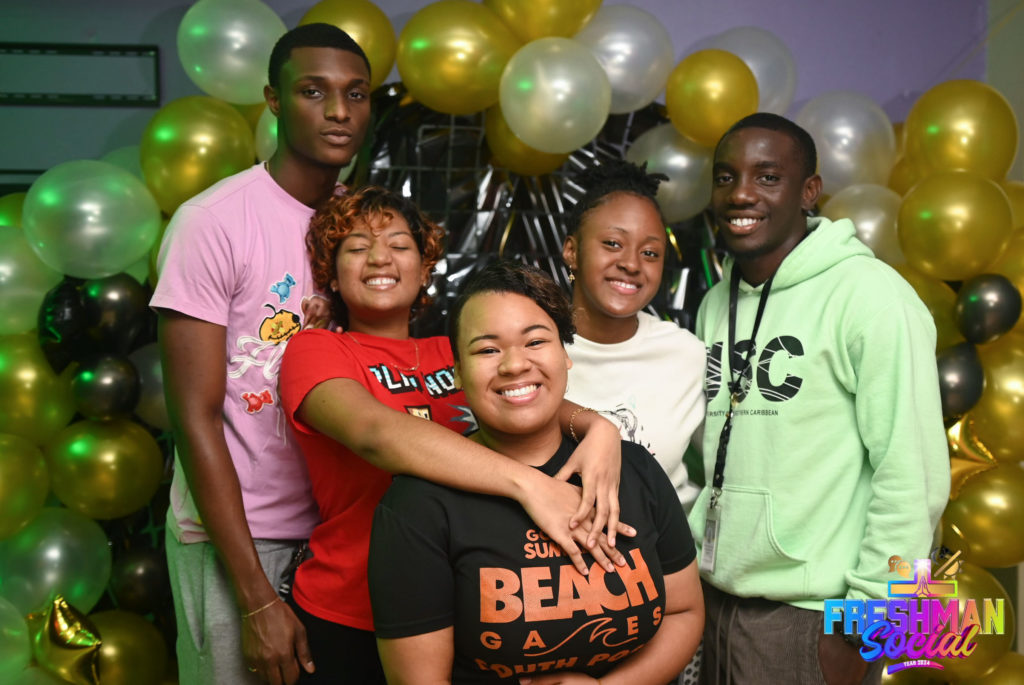
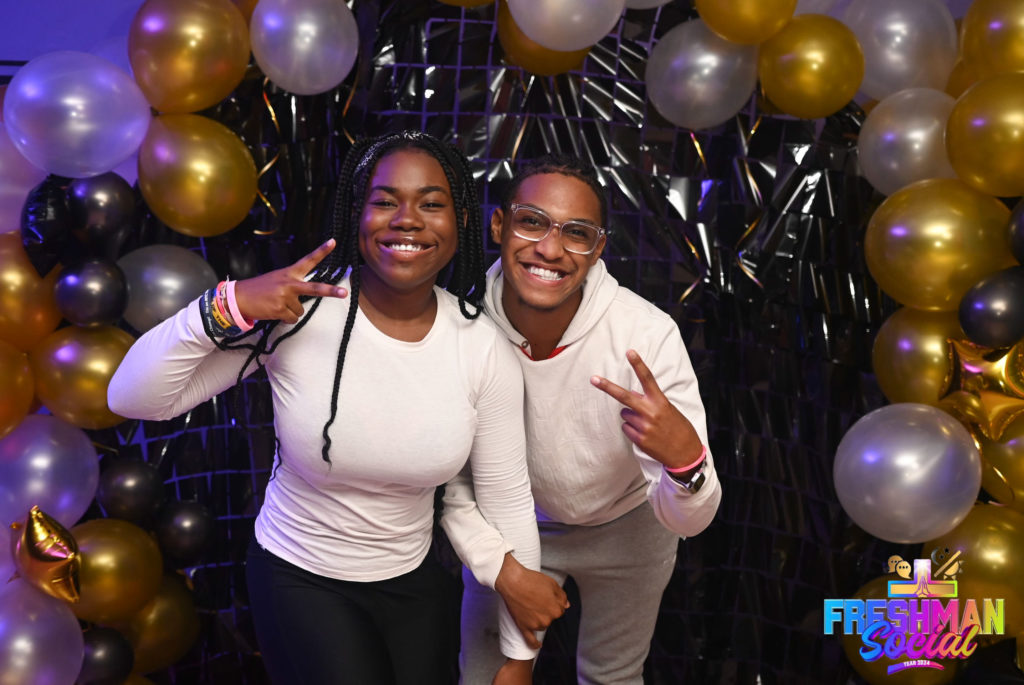
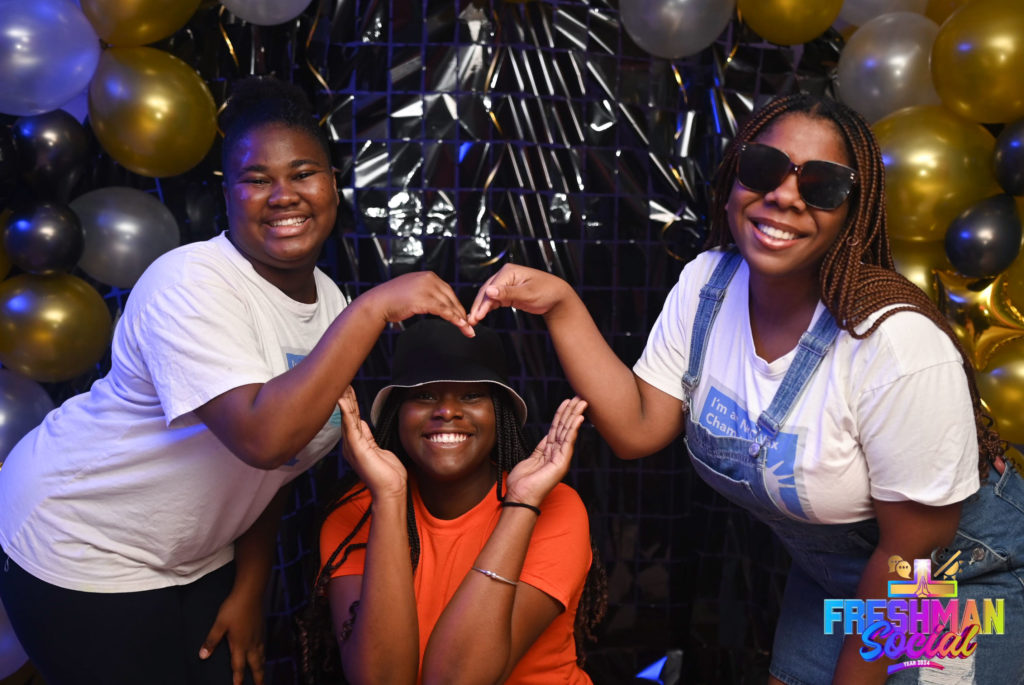
The orchestrator behind the success of Glow Fest was the ASB Director of Social and Cultural Activities, Ms. Anya Nero, along with her dedicated subcommittee. Her meticulous planning and creative vision brought the Glow Fest theme to life, transforming the venue into a glowing paradise. Students were encouraged to dress in white and neon colors, adding to the radiant ambiance of the event.
As the night unfolded, attendees were treated to an array of activities designed to ignite their spirits and forge lasting memories. From neon face painting stations to glow stick dance-offs, there was no shortage of excitement and entertainment. The pulsating beats of the music provided the soundtrack for an evening filled with laughter, dancing, and newfound friendships.
Freshmen Social: Glow Fest not only marked the beginning of a new academic journey for freshmen but also reaffirmed the enduring spirit of community and celebration at USC. As students bid farewell to the event, their hearts were filled with anticipation for the adventures that awaited them in the days and semesters ahead.
As the glow of Glow Fest fades into the night, its spirit of unity and joy will continue to illuminate the halls of USC, reminding students that they are part of a vibrant and welcoming community where memories are made and traditions endure. Until the next Freshmen Social, the glow of this unforgettable evening will serve as a beacon of inspiration for all USCians, guiding them through their academic pursuits with passion and purpose.
View event album here: flickr.com/photos/200072169@N03/sets/72177720314809418/
USC’s Food Sustainability Drive Blossoms Beyond the Farm: Tree-Planting Initiative Enhances Campus Experience
By Simone Augustus, Corporate Communications Officer
In its ongoing commitment to food sustainability and environmental stewardship, the University of the Southern Caribbean (USC) has extended its initiatives beyond the confines of the USC Farm. On Friday, February 2, 2024, a notable tree-planting exercise spearheaded by Dr. Colwick Wilson, showcased USC’s dedication to fostering a sustainable campus ecosystem while enhancing the student experience.
The event marked the establishment of fruit trees in various locations around the Main Campus, symbolizing a tangible step towards integrating nature into daily campus life. With the vision that these trees will mature and bear fruits over time, USC students can look forward to the delightful prospect of picking and enjoying fresh fruits as part of their everyday campus experience.



Dr. Wilson emphasized the dual purpose of the tree-planting exercise: promoting food sustainability and contributing to campus beautification. By strategically planting fruit trees across the Main Campus, USC not only aims to provide nutritious and locally sourced produce but also enhances the aesthetic appeal of the university grounds, aligning with USC’s overarching strategic plan looking ahead to its centennial in 2027.
This tree-planting exercise underscores USC’s commitment to cultivating a culture of environmental consciousness and stewardship among its student body. By integrating food production into the campus landscape, USC fosters a deeper connection between students and their environment, promoting a sense of ownership and responsibility towards sustainable living practices.



As the fruit trees take root and flourish in the coming years, USC anticipates a bountiful harvest that will not only nourish the body but also feed the spirit of community and collaboration. With each fruit harvested serving as a testament to USC’s dedication to sustainability, the university sets a shining example for institutions seeking to create vibrant and resilient campus environments.
Looking ahead, USC remains steadfast in its mission to explore innovative solutions for promoting food security, environmental sustainability, and student well-being. Through collaborative efforts and continued engagement with stakeholders, USC envisions a future where sustainability is not just a goal but a way of life ingrained in the fabric of campus culture.
As the fruits of this initiative ripen, USC invites students, faculty, and staff to partake in the journey towards a greener, healthier, and more sustainable future. Together, let us nurture the seeds of change and cultivate a campus environment where sustainability thrives and flourishes for generations to come.
- Published in News, Office of the President
Happy 50th Independence Anniversary Grenada!

The University of the Southern Caribbean extends congratulations to the beautiful Spice Isle nation of Grenada on the grand occasion of its 50th Independence Anniversary!
As we join in celebrating this significant milestone, we reflect on the rich history and enduring connections between Grenada and our university. Our Grenadian students, faculty, staff and alumni contributes significantly to the USC community, embodying the spirit of excellence, resilience, and commitment to service.
We salute the people of Grenada for their achievements, progress, and vibrant culture. May this anniversary be a time of joy, reflection, and renewed dedication to the values that have shaped the nation’s remarkable journey.
We celebrate your accomplishments and look forward to witnessing your continued contributions to society.
May God bless you on this your golden jubilee.
Happy 50th Independence Anniversary Grenada!
- Published in Alumni, Corporate Communications, News, Office of the President

